#You cannot have a culture without a religion
Explore tagged Tumblr posts
Text
Man Who Talk To God Have Difficult Life - Playing Clerics In D&D

(St. Nokta Kinslayer, whom you'll meet further down in the article. Art by the esteemed @druid-for-hire who quite frankly cannot be thanked enough!)
Guess who's back motherfuckers. When they ask how I died, tell them, still angry. After the paladin article I asked around about classes to cover "next" and got a lot of requests; rogue, warlock, sorcerer, so of course I have elected to be a good friend by losing my will to live for months on end and then doing none of those. Let's talk Clerics, shall we? I'll not lie to you, this is going to be an angrier article than the paladin one, in no small part because it's inevitably going to go into contentious ideas like alignment, fantasy religion, and others that the player base has been knife fighting about since mammoths still walked the Earth. There are going to be moments when I look y'all in the eyes and say with my metaphorical human mouth that the problem is you Doing It Wrong, and I can only ask that you hear me out. Not to assign you homework about my fuckin' cleric article or anything, but the one I previously did about The Many may be helpful here as well. There's going to be a bit of a focus on D&D 5e here, and I'll be frank about that: most people are playing 5e these days, and as I'll be arguing further down, Pathfinder's take on Clerics and more broadly on faith are a worthless poison that actively worsens the world.
This article's title is drawn from Small Gods by the esteemed Sir Professor Terry Pratchett. As always, credit goes to Afroakuma for teaching me a great deal of the examples I'm going to give, though citing specific sources are going to be difficult as many of the books in question have been out of print for decades and I am neither an academic nor a machine.
Now for the obligatory Content Warnings. We're looking at discussion of fantasy religion & comparisons to real-world religion, violence, discussions of atrocities such as torture, desecration of the dead, and destruction of culture, as well as traumatic deaths/backstories for the sample clerics at the end. As mentioned above, there is also going to be some alignment discourse. You have been warned; do as thou wilt.
Without further ado, let us begin with...
O Mighty Smiter - Clerics Through D&D's History
We begin the obligatory text wall.
Clerics have been here since the beginning. They were around back when "Elf" was a class, and while their history is complex it has, eternally, been colored by the bit where Cleric has an inherent identity problem. In many ways it is, as a class, too broad, so wide-open that getting something coherent out of it is an exercise in frustration or even futility. It'll be easier to talk about what Clerics aren't than what they are, and oh boy, will I. A brief note here: while Druid is going to come up in the context of 1e and 2e, and again a bit later when I start talking about priests (yeah, that's a separate conversation, we're gonna get there), this article is not otherwise dedicated to Druid. I'm gonna need a significant amount of whiskey for both me and my priestess before we god damn go there.
AD&D 1e and 2e: Deus Vult - Do the world a favor if you ever pass near Gary Gygax's grave: piss on it. Ol' Gary G rooted Cleric in his classic blend of obsession with medieval ideas and piss-poor research, invoking many myths about priests of the Crusades and applying them as a one-size-fits-all vision of war-clergy of Every God. He would personally run into problems with this in his own writing before he got out of the game, and rather quickly at that, as he tried to write faiths whose imagery and ideals did not fit the Crusader Priest ideal, but since he was, and I cannot stress this enough, a hack with all the morals and emotional intelligence of mustard gas, he never quite solved those problems for himself. I'll hop off my screed now, I just want this said up front, especially since it's the fundamental evil that chases Cleric to this day.
The O.G. Cleric was described as a melee combatant that took a close second-place to Fighter in that arena, with proficiency in heavy armor and a variety of useful weapons, though they were forbidden from using "edged weapons that spill blood" (there's those Crusader myths). Random fun fact, the very first incarnation of Cleric only had spells up to 7th level, but the level tables for their class went up to level 29 or so, and man, ain't that just wild. As your Cleric gained levels they also became more highly placed in the church of their god, eventually hitting High Priest and just kinda sitting there as they leveled up. Interesting note here: Clerics couldn't be Neutral (that is, not Lawful, Chaotic, Good, or Evil) back in the day, and instead anyone wanting to run a Neutral Cleric had to take a subclass you might have heard of by the name of Druid, which in turn eventually had to face other Druids in SINGLE COMBAT in order to level up past a certain point. Why? I don't know. Summon Gygax's ghost and ask him between rounds of spiritual torture. This original version of Cleric had Turn Undead, a feature that's been attached to almost all Clerics by some name or another in all of their incarnations, and boy, Turn Undead used to be fucking wild. Roll a dice, consult a table based on your result and your level, and end up Turning or Destroying a number of very specific kinds of undead. AD&D 2e would put "undead gods" on this list starting at 13th level or so, and let me tell you: this came up in published material more often than you might think. Last but not least, like most characters back in 1e and 2e, Clerics eventually got to run a building full of people. At first the Cleric attracted about 20-200 "fanatics" who would work for free and help them build a shrine (no word on how TF you feed and water these fanatics) but eventually was given the right to build a proper castle-temple and produce 1 silver per month per resident via "trade, taxes, tariffs". Ladies and gentlemen, D&D.
Aside from the aforementioned alterations to Turn Undead, AD&D 2e introduced a concept known as Spheres to Cleric casting. Now, stop me if you've heard this before: each god gave access to 1 or more Spheres, which were specific lists of spells that their Clerics had access to (fun fact, Paladin casting was "as Cleric of 9 levels lower", but only with access to specific Spheres). So if you worshiped, say, Lathander, you had access to Healing, Sun, Divination, and IIRC a couple of others, and that's it, that's the whole ticket. Now, you may remember Kits from the Paladin article, and Clerics did have some of that action, but more than that they had "specialty priests", a sort of even-more-hardcore version of this whole proto-Domain deal; a Specialty Priest had different class features in comparison to normal Cleric, and access to different or more Spheres, both of which were determined by their god. Each Specialty Priest was, in its way, its own separate subclass of Cleric and if you published a god back in the day you had to get one of these installed. Were they all good? No. Fuck no. God no. Are you kidding me? But they were often very distinctive.
This doesn't get talked about a lot, at least not until we hit Pathfinder, but Clerics have had codes of conduct like Paladins for as long as they've existed, sort of atomized across their various gods. The rules around these have always been vague, and rarely culturally enforced in the player communities, but they did and do exist. A cleric of Kelemvor raising a zombie has done a bit of a blasphemy; raising a ghoul or vampire probably entails divine retribution, a reduction in character level, or even the loss of their powers. Oh, and other gods are probably trying to court you since clearly you're looking for new management and a trained cleric is a resourced that's hard to pass up.
No version of Cleric has ever particularly had a strong identity, but this original version may have been the closest to having one...because it's bad. To the credit of 1e and 2e, the eventual installation of Nonweapon Proficiencies, later to become the Skills system, did let them be competent as actual like, priests? Cleric got access to the stuff needed to actually minister as a spiritual leader with some extra socked away to practice sacred arts related to their god (ex. bookbinding for a cleric of Denier) and maybe even some god damn hobbies too. But outside of the ever-more-niche & esoteric arena of specialty priests, themselves presented as particular fanatics, agents, or chosen ones, every cleric was a Crusader, and every god's clergy were war-priests. And that's weird, right? And so now we must move on to the demon that never dies.
D&D 3.5: The Word Of My God Is 'Begone' - Quick question, have you ever wanted to roleplay someone perceptive but otherwise deeply stupid and utterly incompetent to move unsupervised through human society, who is, nonetheless, OMNIPOTENT? Welcome to the 3.5 Cleric, one of THE casters of all time in the absolute Caster Supremacy Edition. I hope you came ready to hear casual mentions of mechanics that would make a Victorian occultist cry. If you go looking at the class page for Cleric you might notice there's both jack and shit there, and for my readers who got into D&D at 5e the following might be a bit of a shock: Cleric was one of the strongest classes in 3.5.
In terms of the actual mechanics related to Cleric in 3.5, Turn or Rebuke Undead and spontaneous casting were some of the big ones. Well, "big" ones; Turn Undead qua Turn Undead was actually kind of shit and would often just not actually like...turn...the undead, but the charges of Turn Undead a Cleric kept around could be used for many other options that permitted alternate spending, notably here to include Divine Metamagic. These alternate spends were better than using Turn Undead for its actual intended purpose more or less always, and Divine Metamagic (DMM) in particular was an unholy monstrosity that underlied a lot of Cleric's power later in 3.5's run, letting them customize their prepared spells on the fly without having to use up higher-level spell slots. Now, I really cannot stress this enough: Cleric was one of the most powerful classes in core alone, without adding any supplements. DMM and similar options made Cleric even stronger but they were very much gilding the lily, to be frank. "Hey Vox why are you saying this," you would not believe the number of ignorant pricks who made a literal moral crusade out of going to "core only" in 3.5 claiming it made for a better balanced game. The good version of 3.5 has never existed, destroy anyone who claims otherwise.
Where was I - spontaneous casting, yes. Now, Clerics were still prepared casters, they had X spell slots every day at very specific levels and had to pick specific spells to fill them. That is, if you want to cast create water more than once in a given day, you need to memorize create water more than once that day. However, Clerics could convert a spell of any level to either cure wounds or inflict wounds of the same level, depending on the alignment of the Cleric (Good Clerics Turn Undead and cure wounds, Evil Clerics Rebuke Undead and inflict wounds, and Neutral Clerics not otherwise restricted by their god get to pick one for their entire career). This gave 3.5 Cleric a lot of flexibility, very valuable flexibility in a game environment where casting a heal mid-combat was basically always the wrong move, but out-of-combat healing was still an invaluable resource. RIP to Evil Clerics though, inflict sucked ass.
Lastly, we have domains. Now, if you check through the domain list on the SRD you may notice that they are rather less defining than the 5e Domains, granting a single power apiece and a list of spells you get access to. Most gods in 3.5 granted access to 3+ Domains, and their Clerics got to pick 2; together, these are the "kind" of Cleric you are, the aspects of your god that you kinda embody which then shape your power. Clerics got special extra spell slots solely for Domain spells in addition to their usual progression, and could memorize these Domain spells in normal slots as well. 3.5's list of Domains was deep and wide to the point of self-parody, and the power that gave a player to customize their Cleric's aesthetic and mechanics could be immense. Sure, many Domains were much weaker than others (Magic Domain is bonkers and that asshole is in core) but ultimately every Domain is stapled to Cleric, and since Clerics don't learn spells, only memorize them, there's a floor as to how weak you can possibly be.
So, what are your restrictions on Cleric? Not many. Non-War Domain Clerics had a sort of mid list of weapon options, sure, but if you're not casting you're playing wrong already so who gives a shit. Heavy armor and full access to shields meant a lot of build flexibility as far as that goes, so no problems here. The biggest thing is that a Cleric needed to be, and remain, within one alignment "step" of their god, plus or minus any other specific restrictions. That is, a Cleric of Liira, who is Chaotic Good, must be Neutral Good, Chaotic Good, or Chaotic Neutral; becoming Lawful Good, True Neutral, Chaotic Evil, etc would result in losing all Cleric powers and being unable to take Cleric levels until they fixed their shit or found a new god. Strictly speaking, these Clerics could/would still Fall a la paladins if they sufficiently blasphemed against or angered their god, but in practice this sort of thing was just...not common.
This is the section where I would talk about other divine classes in 3.X but honestly they were all so god damn weird and specific that no comparison really could be made. Shugenja, for instance, just isn't cognate to Cleric. The closest thing is the Healer class, no points for guessing what their deal is, but the thing with Healer is they have more in common with paladin, so like. Cleric or bust baby, welcome to fucktown.
Which brings us back to what Cleric was like narratively, the answer to which is: confused. The thing is...Clerics have always, likely will always, want high Wisdom, which makes them perceptive, good at detecting lies, weirdly talented at handling animals, competent to navigate the wilderness, and also I just described a Disney Princess. The trouble is, nearly everything else is strictly secondary. Every caster wants and needs Constitution in 3.X so they can make those Concentration checks and also, you know, not die, so okay, you're perceptive and you can hold your liquor, but after that nothing else matters. On the one hand, this makes for a great deal of versatility in terms of your ability scores, but on the other hand Cleric had 2+Int skill points per level on the most dog shit skill list in the game so being a very smart Cleric rarely bought you anything. Higher Charisma could be cool, but hey, see that skill list? It's still shit, and if you aren't also buying Intelligence you quite literally can't afford to keep up the social skill tax. A true war-priest wants Dexterity so they can act before their enemies and command the battlefield but that's more or less all you buy out of Dexterity on Cleric so congratulations, you're an almighty quickdraw and also illiterate. "What about Strength," what about it.
I really cannot overstate the paralyzing nature of that skill list, because priests - which 3.5 wanted Clerics to be, which it thinks they are - need more of them than most people think. A proper spiritual leader needs to buy up Insight, Knowledge (Religion), Knowledge (Local), Knowledge (Nobility), and Persuasion at a minimum, and they sure do also want Intimidate and Perception. You get two of those. Two. Just two. If you buy up Intelligence after you eat your vegetables like a good player, you maybe get to buy four of those. And that's it, that's all you fucking get. Clerics are not competent to be priests, which is going to be true of them going forward from this edition on. Now, I'm painting with a relatively broad brush here, and there's definitely religions on Earth these days which did, or still do, separate out roles that might reasonably be called a priest & Cleric vs. those roles that are community leaders and interpreters of doctrine and law, but there's a shocking amount of "here's my vision of what priests are and do" that Cleric wants to be, and isn't, because of this whole fucking deal.
But while 3.5 was extremely blind to the bit where Clerics just were not what it thinks priests are any more, it was very much not blind to the terror and power of their spellcasting. A high-level cleric, in the narrative of any given setting, is a terrifying force - an army unto themselves, a one-woman political bloc whose existence is an implicit threat of violence on a civilizational scale. I didn't spill all that ink about the power and mechanics of Cleric up there for nothing; 3.5 was very interested in how those mechanics could manifest within the narrative, how they are inextricably bound to said narrative. Hell, in Expedition to Undermountain alone the backstory of the dungeon includes one non-relevant sect of Clerics who was, in-universe, trying to game the spell slot system, alongside another unrelated sect that the PCs trip over by accident and fight inside their half-constructed fortress of partially undead bone which they control via Rebuke Undead.
Lemme say that again just for emphasis: there's an adventure where an accidental encounter is a long siege through a half-animated evil fortress that can be controlled through pure divinity, which was invented because its builders, in-universe, were trying to optimize their power and create an advantage they could control but their enemies couldn't. And this is just my favorite example, it's hardly the only one. Even the fucking novels got in on this sort of thing. We all joke about how wizards have no rights, because they don't, but watch a Cleric hit level 7 or so and you'll realize quickly that they are becoming something to which mortal laws are more like polite suggestions. Nor is this necessarily solely the sign of greater favor and thus potentially restriction from their god; indeed, a Cleric has to bring things to the table themself, narratively speaking! Divine spellcasting is a real skillset that you get better at with practice and experience, and part of the reason higher level Clerics get so much attention from other gods - aside from the obvious "this person can solo an army and still go home in a mood to have sex with their wife" angle - is that a skilled Cleric is a rare resource worth stealing.
Overall, 3.5's vision of Cleric is perhaps the one that suffers most from Cleric's identity-draining lack of specificity. Its Clerics were powerful, but they were also largely all the same; they could change their spells every day, but that only really meant that your list of spells doesn't really matter beyond personal preference. Domains offered some customization, but they didn't go far enough, and indeed if they were to go far enough the all-consuming might of Cleric would only be even more flagrant. So let's return to the most honest edition of D&D, shall we?
D&D 4e: Healer Calls The Shots - There are a lot of reasons that D&D 4e was born dead, and a big one is that classes with healing abilities were labeled 'leaders'. This seems absurd these days, especially if you're into esports at all; the support player being the team leader has become accepted strategy in a variety of games, in no small part because one simply cannot win without them, and yet at the time the D&D fanbase - still in an awkward transitional period of nerd masculinity that I don't have the time or the PhD to write about - rebelled against this concept with fountaining violence. The "girlfriend classes", leaders? Absurd. Preposterous. Clearly Sir Dipshit the Fighter with no mental stats or applicable skills is the leader.
I'm not fucking bitter, you are.
So what was Cleric's deal, exactly? Cleric qua Cleric was a Leader, as mentioned before, that could primarily be built either as a scrappy melee type or a more hard-support implement caster. "What's an implement caster?" glad you asked; back in 4e you had to hold a casting implement to cast your spells, something like a rod, staff, wand, holy symbol, your mother's haunted skull, whatever, and these had specific mechanical effects that altered your abilities. Some classes, like Cleric, could also or instead use a weapon as their implement, but in practical terms the strict wealth-by-level guidelines meant you got one or the other and would build your stats accordingly. Keep this in your back pocket for later, it's going to come up again. Also for your back pocket for later: these implements were, well, implemented as part of 4e's item progression, and the expectation was that you would spend your available resources (in this case, gold/phantom gold, collectively Wealth By Level) on better implements that would make your abilities work more work-y. Limited wealth meant that while in theory you could have both a magic weapon and a magical implement, in practical terms you get one or the other 'cause there's other shit you gotta buy.
What Clerics did with these implements was sell healing and healing accessories. While 4e introduced the concept of Radiant damage (used there as especially good against fiends, undead, and other forces of evil) and Clerics did indeed have access to some of that as well as buff abilities, their main thing was being the ranged healer par excellence, able to heal or cause healing far in excess of their peers in the role such as Warlord. Here, then, we return to the throughline of the divine healer which stretches all the way back to fucking BECMI, and which modern audiences may recognize more readily as the JRPG archetype of the White Mage - itself rooted in BECMI again! This hobby is an ouroboros, I say, with love.
Joining Cleric here are a selection of other classes with divine powers who take on a similar conceptual space. I talked a bit about Invoker during the Paladin article so I'm not gonna go over them again (this shit is long enough as it is), so we're gonna talk about Warpriest and Runepriest.
Introduced in the Essentials line, Warpriest was - like most Essentials classes - a simplified take on Cleric meant to be more accessible to new players. It shifted just about everything towards Wisdom in terms of writing one's character. Warpriests were these tanky all-around characters who gave up some of Cleric's team support for better attacks, and notably did not select powers on level-up, but rather got a progression based on their Domain. Readers familiar with D&D 5e might see some similarities here.
Runepriest, on the other hand, was a weird freak of a Defender whose thing was projecting offensive or defensive Auras that they could amplify with their support abilities and swap out every time they attacked. Their primary stat was Strength, drawing on a similar idea to the later revised 5e Barbarian or, perhaps more familiar to y'all, Beast incantations in Elden Ring. Very much not simplified, Runepriest offered some initial build diversity but didn't get a lot of support as the gameline continued, ironically ending up as very limited despite seeming intentions of breadth.
Narratively, these classes were somewhere in the range of 'village preacher with a hidden badass streak' to 'war missionary' to 'literal thug for the literal god of literal fascism'. 4e here stands out for being the first edition to acknowledge that a Cleric is not really a priest as such, and is much more like...a chosen one, a conception that very much fit well into 4e's idea that adventurers are inherently freaks who do things no sane person would ever consider. If you're thinking, "gee that sounds odd, why wouldn't there be like Clerics just existing inside cities", I point you at works like Dungeon Meshi who advance this same idea. Fundamentally, the skills one uses to break into ancient tombs full of undead are not skills you develop while working as a spiritual leader or a bureaucrat or even as a military officer. Adventuring is not a career you get into because your life is going well.
Of course, as mentioned, D&D 4e was born dead, so now we need to talk about the demon that ate its corpse and was, for a time, the unquestioned king of the TTRPG space by dint of its treachery and malice.
Pathfinder: Deus Vult Part II: World Holy War - Keep Pathfinder in your back pocket next to casting implements, they're gonna star in the religion section later as I express a fundamental anger that borders on inhuman rage. You have no earthly idea just how much I'm cutting out of this section alone considering that like many, I was there for Pathfinder during the beta and thus got in on the ground floor of a great deal of incompetence, malice, cruelty, outright betrayal, unexamined double-think, and egotistical bullshit.
That said, let's actually talk about Cleric.
In terms of Cleric qua Cleric, you may be noticing that the table there looks a lot like 3.5's Cleric, and indeed in many ways they're pretty similar. The biggest immediate difference is the addition of Channel Energy, which lets a Cleric become a healing bomb (or harm undead bomb, or vice versa) a certain number of times per day linked to their Charisma modifier. This is in addition to spontaneous casting, so it's a strict addition; further, it being a 30-foot burst means a channeled heal might actually be worth your Standard Action at some point in your career. It won't be, but it might. Additionally, Pathfinder Clerics are proficient in the Favored Weapon of their god by default (more on this later), which - by contrast - was often much harder to access in 3.5.
Like D&D 3.5, Pathfinder has a dizzying array of Domains to go with a default setting packed full of gods (more on this in the religion section later), ranging from things as broad as 'all magic ever' to things as embarrassingly specific as 'ambushes as laid by kobolds specifically'. Seriously, look at this list, it's absurd. And while by sheer numbers and specificity it's roughly equivalent with 3.5, I'm not about to claim 3.5 has the high road here, Clerics in Pathfinder get more abilities from their Domains and thus your choice of Domain and/or Subdomain is far more important to your Cleric than it ever was in PF's parent game.
Indeed, option paralysis is going to be the name of the game here. Clerics in Pathfinder, in addition to Domain and Subdomain and their choice of god, also get to pick out variants on the Channeling ability that I talked about and, like all Pathfinder classes, have access to a dizzying array of Archetypes. These Archetypes in turn range in scope and concept from variations on how one has trained as a Cleric (such as Crusader, keep that name in mind for later) to like, race essentialism as class features such as Fiendish Vessel. Sit on that statement for a bit. Really internalize it.
Now, while the rules for Pathfinder give provisions for older versions of Clerics such as Clerics of ideals, Planar Clerics, etc, in practice Pathfinder is very much married to its one-and-only setting, Golarion, and to its particular vision of Clerics as the dedicated priests of a single god. This is a difficult vision to accomplish, as they still aren't competent to be priests, but it's also one that adds another layer of information a player has to juggle, as Golarion makes a much bigger and yet somehow much smaller deal about Clerics falling and losing their powers; each of its gods has a published code of conduct, Obediences you can perform for mechanical benefits, and sometimes even exclusive spells. I said I was gonna cut my beefs with Paizo out of this section but I really cannot resist just one: this is from the creators who made their first bones by arguing that mechanical bloat was the cardinal sin of 3.5 and advertised a return to the purity of Core. It would be funny if it weren't so fucking infuriating. If you can't hack it as a Cleric of your god, you lose your powers until you either start hacking it, or find a new god that agrees better with your current behavior, and those gods are very much in the market to hire.
In addition to Clerics as the hypothetical main priests (both as PCs and NPCs), Pathfinder introduces Inquisitors, Oracles, and Warpriests and we're gonna have to talk about all of them so I hope you weren't doing anything else with your day. Let's start with Inquisitors. Meant to be to Cleric what Ranger is to druid, Inquisitor is a wildly revealing take on how Paizo thinks about religion and ethics. To wit:
"Grim and determined, the inquisitor roots out enemies of the faith, using trickery and guile when righteousness and purity is not enough. Although inquisitors are dedicated to a deity, they are above many of the normal rules and conventions of the church. They answer to their deity and their own sense of justice alone, and are willing to take extreme measures to meet their goals. Role: Inquisitors tend to move from place to place, chasing down enemies and researching emerging threats. As a result, they often travel with others, if for no other reason than to mask their presence. Inquisitors work with members of their faith whenever possible, but even such allies are not above suspicion."
James Jacobs would like to tell you, with a straight face, that this is a normal and expected way to engage with religion, to think about religion, and that Inquisitors as presented here can be of any alignment and serve any god, all of whom will keep them around on purpose. In a related story, James Jacobs is a sniveling wretch. In another related story, the aesthetics and proficiencies of Inquisitor are very much like, the Hugh Jackman Van Helsing. I do not say this as an insult to either Inquisitor or to Mister Van Helsing, his aesthetics slap, but do keep that in mind for what I'm gonna say later.
Mechanically, Inquisitor drops a lot of control and damage, gleefully sacrificing most of the support a Cleric offers in favor of singling out particular targets and persecuting them to death. They also get a surprising amount of out-of-combat utility, adding their Wisdom modifier to Knowledge checks to identify "monsters" ("hey what's a monster" good FUCKING question), gaining bonuses to tracking like a Ranger, and adding a FAT bonus to Sense Motive (this becomes Insight in 5e) & Intimidate checks. Their combat style is a mix of hard control spells and self-buffs to damage so they can sandpaper their enemies to death; very functional, but also very much a particular vision of a holy warrior. And lest we leave this unsaid, Inquisitor spells were very much concerned with rooting out "heresy", heterodoxy, and punishing "sinners" within their own faiths, which is a wild-ass statement when you remember, again, that they can follow any god. You wanna tell me the god of revolutions runs secret police whose job it is to murder heretics? You wanna tell me that, James Jacobs? That's what you're telling me? Fucksake. Adding to this is that while Inquisitors can take Domains, they more commonly take bespoke Inquisitions that, well, make them better at being the secret police. You know how the god of the harvest runs the Grain Gestapo and they're the good guys somehow? Like that.
This, however, is where I drop the other shoe. Look at Inquisitor's skill list. Look at their skills per level. Are you seeing what I'm seeing? They're competent to serve as spiritual leaders, indeed, infinitely more competent to do so than either Cleric or Warpriest are or ever will be. The rest of their abilities make that idea just a little bit absurd, but if you don't mind every local village priest being an apprentice serial killer on their off hours Inquisitor is the only divine class that can do the job. The only one. There are no others. The next-closest candidates are fucking Bard and Rogue.
Which brings us to Warpriest, I think. I will not mince words here: Warpriest fucking sucks. Pitched as one of the many so-called "hybrid classes", Warpriest's parent classes are Fighter and Cleric, and it really got the worst end of both. Cleric is cracked enough that even with 6th level casting Warpriest evens out to doing fine, but my fucking god. Warpriests get some minor buffs to their weapons and armor, allowing them to customize those items and granting a phantom buff to the budget they can assign to them, as well as access to Blessings, their particular spin on Domains. These are good ways to extend their spellcasting but are, essentially, equivalent to a secondary pool of spells and buffs; likewise, their Fervor ability is a pool of healing/harming in theory, but in practice you burn Fervor to self-buff as a Swift action (Bonus Action for you 5e folks) or you're doing it wrong. The problem here is that Warpriest is just...worse Cleric. The phantom buffs to their weapons and armor, as well as their pool of bonus Combat feats, do not make up for the bit where they swing less accurately, less often, than an equal level Fighter, Paladin, Ranger, etc. You're casting or you're failing, and if you're already a hard caster, you're a Cleric - and Clerics, y'know, are already war-priests.
Oracle is the weird one out of this list. A spontaneous and Charisma-based divine caster, Oracle stands out for having a more limited list of spells that they get to use more often, and for having flexibility with their use of Metamagic feats the way a Sorcerer does. "What if I don't want to use Metamagic feats," I'm afraid you'll need to go fuck yourself, this is what you're doing. Oracle was an instant smash-hit with the player base of Pathfinder for its strong aesthetics and customization; where most Clerics are essentially the same with minor differences, every Oracle is, in some way, different. In particular, each Oracle has a Curse which makes them like, literally & textually disabled in some way but also grants them power, ranging from "you're just deaf, that's it that's the curse" to "you've been infested by an alien hive-mind from literal space, good luck fucker", and also pursues a Mystery that gives them themed abilities and further customizes their spell list. Unfortunately this is still a Paizo class; in terms of the actual mechanics, most Curses are essentially meaningless, with a rare few either being so bad that they're unpickable or so good that you kinda have to justify why you didn't take them (Deafened is the latter, incidentally) and most just being nothingburgers that matter not at all.
Now, notable here before I talk about Mysteries is that Oracle, like Cleric, is living that 3/4th base attack bonus life and can natively wear up to medium armor. Unlike Cleric they are not natively proficient with their god's Favored Weapon but otherwise they're fronting as a gish (spellblade for you youngbloods, a character that mixes magic and melee). The thing is, while that 3/4 attack bonus is great for spells that make attack rolls - here Oracle is handily beating contenders like Wizard or Sorcerer in terms of accuracy - they are, you know, ninth-level casters. The correct move for your turn is "I cast a spell". There are not exceptions to this. In an extremely related story, most Mysteries are full of not-spell things to do with the actions you would normally use to cast spells, and while some of them - such as the endless parade of ways to boost your Armor Class - replace certain spells, essentially saving you a slot, many of them are just kinda...weak blasts or control abilities that don't meaningfully compete with, again, "I cast a spell". And like, the flip side of your choice of Mystery often not mattering is that you're free to pick something that seems thematic to you, but riddle me this: if you never use the abilities you pick up, does it matter that you have them?
There's some obvious winners in Mysteries, as there always is. Lore and Time are cracked as hell, and you can get away with something like Metal that has mostly passive abilities, but here we need to talk a bit about the theme and flavor of Oracle. Paizo sold the class on the idea of mysterious connections to the divine, a sort of divine mirror to their Witch class whose associations with the otherworldly are potentially unknown to them and move them without their consent. They then immediately abandoned this faster than my father abandoned me; every published Oracle is the Oracle of one god in particular, Mysteries are associated with gods the way Domains are, and this means that in all ways Oracle is a Cleric who can get laid. I am, perhaps, disproportionately angry about this, both on a professional level (lying to your readers is a bit of a dick move) and on a personal one (I wanted the Oracle they sold and did not receive it). And that's...a bit of a let-down, right? Paladins are already god-locked in Pathfinder too, so at this point Oracle, while having strong imagery, is not meaningfully different from its peers in a way that you can really latch onto. I dunno. It's a waste, y'know?
Overall, Paizo's vision of its divine classes is not able to be separated from its vision of religion as a zero-sum holy war in which everyone is desperate for converts, no one trusts anyone else, and rooting out one's own flock for heretics and heterodoxy is considered normal and morally acceptable behavior. Paizo deadass thinks the Spanish Inquisition are the good guys, if not literally, then in spirit, and that is, not to put too fine a point on it, disgusting. Mechanical innovations are present here, but to be frank the signal-to-noise ratio is awful, and it's very much not worth the effort to pillage their work for the few good ideas that have managed to survive.
Which brings us, at long last, to:
D&D 5e: The Power of God And Anime On My Side - I apologize for nothing and I will do this again.
So, right here up front, before I talk about anything else, anything else at all, Fifth Edition Clerics are, for the first time, both not priests and not trying to be priests. To quote Pages 56-57 of the 2014 Player's Handbook: "Not every acolyte or officiant at a temple or shrine is a cleric. Some priests are called to a simple life of temple service, carrying out their gods' will through prayer and sacrifice, not by magic and strength of arms. In some cities, preisthood amounts to a political office, viewed as a stepping stone to higher positions of authority and involving no communion with a god at all. True clerics are rare in most hierarchies.
When a cleric takes up an adventuring life, it is usually because his or her god demands it. Pursuing the goals of the gods often involves braving dangers beyond the walls of civilization, smiting evil or seeking holy relics in ancient tombs. Many clerics are also expected to protect their deities' worshippers, which can mean fighting rampaging orcs, negotiating peace between warring nations, or sealing a portal that would allow a demon prince to enter the world.
Most adventuring clerics maintain some connection to established temples and orders of their faiths. A temple might ask for a cleric's aid, or a high priest might be in a position to demand it."
Merciful fucking Illmater, we made it y'all. Not that the player base, by and large, has noticed; many people continue to play clerics as priests, to think of all clerics as priests and spiritual leaders, and to expect them to be such. And they are not priests. As I've argued already they've never been priests, but 5e does have a firm vision of Clerics - they're shonen protagonists. The chosen many, as it were, and that vision is clearer and more thematic than Cleric has been since mammoths still walked the Earth. Y'all are doing this wrong. Please stop.
Anyway, mechanics! The more things change, the more they stay the same; Cleric still has a dog shit skill list, they're still a mid-armored all-rounder with anti-undead features, they're still pretty good at resisting mind control. The Optimal Cleric(tm) is rocking high Wis and Dex so they can act first and get off their powerful control spells, which in turn implies light armor in an unusual first for D&D, but I'll be real with you: Cleric has one of the best spell lists in the game, as long as your Wisdom is high you can do whatever you want and never be punished for it. Notable here in comparison to previous editions are the flexibility of the Cleric's spell slots in 5e - you can cast any spell you have prepared out of your slots rather than locking 1 spell to 1 slot - and Ritual Casting, a feature most people associate with Wizards but which is very, very much available to Cleric and gives them similar out-of-combat utility. Turn Undead and Destroy Undead return, both more functional than they've been in decades, and are now linked to rests of any kind and also used to charge Domain features. "What about Divine Intervention -" what the fuck about it.
Which brings us to Domains. And the thing about Domains is there's still a lot of them in the context of 5e; the Player's Handbook alone published seven of them, and just about every player-oriented book after that had 1-2 more, sometimes as many as three. Cleric is feasting, and while most of the food is decidedly mid it still doesn't matter because it is, again, stapled to Cleric. Like I could wax poetic, at some considerable length, about why Domains like War, Trickery, or Grave are bad options, but y'know, the thing is, they're still fucking Clerics, they'd be doing fine with no Domain at all. I'm not gonna go into a massive breakdown of the pros and cons of any given Domain, but in general you'll have the most harmonious time with Domains that don't expect you to be spending your actions doing things that aren't casting spells. War, for instance, is gonna be a let-down because it really wants you to be making weapon attacks and you do not have the tools to make that remotely worth it; conversely, Grave also sucks, but it mostly fills in actions that your spells can't or won't, so you'll have a much smoother time playing Grave. For those wondering, the hands-down winners of the Domain list are Knowledge, Life, Light, and Tempest, though an extremely dishonorable shout-out goes to Order as a control & utility pick that is completely unaware of its own existence as a cosmic fucking horror story. See the sample Clerics below for that shit.
Now, remember when I told you to keep implements in your back pocket? 5e also has them, but they're introduced a bit...unevenly. Magical items do exist that do what magic implements used to do, namely, boost your spell DCs and spell attack modifiers - the caster equivalent of a magical weapon - but not many were ever published, and the ones that were are mainly for arcane casters. Fans of Critical Role may be recognizing items like the Spire of Conflux or the Hand Cone of Clarity as taking this role (and indeed quite a bit of Mercer's world and mechanics draws influence from D&D 4e), while players of Baldur's Gate 3 are pointing at the screen and naming some of their favorite caster-focused shields, gloves, and helmets right now. Any of these are a pretty neat way to engage on this idea as long as you keep things under control (you don't wanna exceed a total of like, +3/+3 here), but you as the DM, or you and your DM if you're a player, can and will be making this shit up yourself for your Cleric.
So, what's 5e's vision of Clerics, narratively? Well...see, the thing is, the text I quoted above is mainly it. D&D 5e is remarkably lore-light on the player-facing end, instead investing a lot of its lore writing in wild reworks of various cultures such as drow or gnolls, which I will not comment on because I do need to end this article at some point and I'm still in the fucking context section. There's a soft sympathy towards the position that 5e's Clerics, as they level, are holier Clerics, rather than more skilled Clerics (again, see above), but even that is a very tepidly held position, one which in novel writing and related media is far from consistent or primary. That said, I couldn't walk out of this section with a straight face if I didn't talk about the WILD fucking Domain assignments 5e makes for its gods, which in some cases is an artifact of many more specific Domains no longer existing, but in other cases appears to be the product of some of the most ignorant Protestant bullshit you can possibly imagine when thinking of the gods in question. Again, see the existence and flavor of the Order Domain as an example here, but like, in what fucking universe is Helm associated with the Light Domain? Since when was Wee Jas a Grave Domain kinda goddess? Not to hype this up twice in two paragraphs, but you will notice when we get there that I have chosen to ignore this whole affair for many of the upcoming sample Clerics and when I do there'll be some discussion about it. I do these things to myself and I really wish I didn't but this is who I am as a person now.
Going to the Land Of Context is like going to the Underworld, it takes you three days no matter how fast you travel. But at long last we have arrived, and we can conduct the actual fucking article. May Oghma pity me, for I myself will not.
Gotta Go, The People In The Important Pajamas Are Mad - Clerics At Your Table
Before I say anything else, that headline is not my original line but I cannot for the LIFE of me remember what early aughts webcomic it's from. I am likely misquoting it but if anyone on this hellsite recognizes it and can point me back to it for a proper credit I will be quite grateful & also get the citation in.
The following section is meant to help you in fleshing out a Cleric concept to play or even to use as an NPC. While some of this advice is edition-agnostic and indeed when we get to the religion section we're gonna return to some Takes Through The Editions and I will be very sad and also angry, a great deal of it will be slanted towards 5e because, let's face it, that's what people are playing. Make of this what you will. Also covered here will be same-paging (again), Clerics & alignment, and common pitfalls of playing Clerics (and suggestions of how to avoid them). So, without further ado:
Same Paging - In Which I Blow The Meta Joke About This Being In Any Class Article I Do Early Like A Damn Fool
Same-paging is the practice of talking to your group in a way that helps set mutual expectations, and it’s something every RPG group should strive to do regardless of the system they’re playing in. You’ve probably done this to an extent before, as part of being pitched a game (”We’re going to do a dungeon crawl through the deadly halls of Undermountain”), during character creation, and the like. If this opener to the section sounds familiar, it's because I copy-pasted it from my last class article and there's nothing you can do to stop me. In the specific case of Cleric, the elephant in the room you need to explicitly talk about and not just assume shit about is the sort of relationship you're looking to develop between your character and their god(s) and, y'know, any themes or ideas about spirituality that you explicitly would like to see included or, conversely, very much need to not see included. We're gonna get into it more in the religion section later but man it truly does fucking blow chunks if you're looking to have, say, a serious exploration of your character's faith and its relationship to society, but the rest of your group is on some Reddit Atheist shit, right? Hell, it's not even pleasant if you unexpectedly end up doing the inverse. In addition to this, if you're looking to explore ethical or doctrinal dilemmas (i.e. if you're really into the idea of playing a Cleric of Eldath as a dedicated pacifist, or dig into the conflicts that might arise between the Orders of Denier who preserve knowledge vs. some kinda magical infohazard), this is the time to say it and chew it over with your group. And again, as long as everyone's having fun and not hurting someone else any way you play it is fine - a kick-in-the-door style campaign is a perfectly fun campaign to have. The point is to set expectations up front, not to like, ensure that the group is playing in the one ordained way to play. Which is bold words considering how many times in this article up to this point I've deadass accused people of playing wrong, but I do mean it. I contain multitudes.
One Day, A Tortoise Will Learn To Fly - Making Your Cleric
The Pratchett quotes will continue until morale improves.
Once you and your group have communicated your expectations to each other, it’s finally time to start sketching out your concept! There are many ways to do this, though the two primary schools are mechanics-first and narrative-first. That is to say, opening up with something like "Using the Knowledge Domain to pick up proficiencies on the fly sounds fun to me," works out great, as does opening up with something like, "My Cleric learned her ex-wife was literally a goddess about three weeks ago and is having a wild one about it." However, this article is about to be long enough already without me trying to write a mechanical guide to 5e Cleric, let alone any other Cleric, so we're gonna focus on the narrative approach. If you need a mechanical guide, I promise you that the player base of whatever edition you're into has made several and that the author of each one has some kind of passionate beef with the authors of all of the others. Consider the following questions for your Cleric:
Why Did You Become A Cleric? To be a Cleric is to be of the chosen many; inherently, you're gonna be a bit weird. That weirdness may be because of the conflict between your perceived social station vs. who you are as a person (to wit, people might expect a Cleric of Oghma in the Forgotten Realms to be a stuffy scholar and be surprised when he shows up to strongman competitions or turns out to be one of the Sword Coast's most prolific authors of erotica), but in all honesty odds are much higher that you're a freak. Incredible divine power doesn't erase the bit where adventuring is not a career one takes up because one's life is going well. That said, just because you're a chosen one doesn't mean you didn't also get to choose. Did your Cleric pursue Clerichood for some reason, and if so, why seek that power? If they didn't seek it out on purpose, how do they feel about this change in their relationship to divinity and the burgeoning power within them? This is where you can get both characterization and plot hooks; a Cleric forged when she swore herself to the Red Knight in a desperate attempt to defend her farm from bandits is a very different beast from one who sought power and station from Bahamut so they could enact reforms in their society. Look for connections to the game world and reasons to care about it.
How Did You Learn? There's some obvious things to answer here - your Cleric learned how to wear up to Medium armor, the proper use of shields, and basic combat techniques - but the more interesting question to dig into is your spells. D&D has actually had many different schools of thought here, some of them co-existing or competing with each other. D&D 5e, as mentioned above, breaks on the idea that a higher-level Cleric is a holier Cleric, and that their casting is an almost intuitive process of seeking intercession or requesting miracles in advance in case they need them. Many people play their Clerics this way, but here I will once again climb atop my mountain of old-ass lore and offer an alternative: divine spellcasting as a skill you actually have to learn and practice. In this school of thought, a higher level Cleric is a more practiced and powerful Cleric, and is intrinsically attractive to "rival" deities not simply because they are a great champion of their own but because they are a potent resource. For those in the audience wondering how this makes any fucking sense, I will point out, gently, that this idea is actually still prevalent in Japanese media and its White Mage archetypes, as well as in popular videogames like Elden Ring. These Clerics learn spells from somewhere, and the "somewhere" has a broad variety of answers; they unlock the secrets of their rites through cryptotheology, they experience divine revelation, their god teaches them personally, they're mentored by more experienced Clerics. Indeed, Ms. Jester Lavorre of Critical Role fame engages on her divine casting in this mode, often expressing that the Traveler has been telling her about new spells or teaching them to her personally, and while this is set up as something suspicious about the Traveler in her story it's actually a quite storied idea of Being A Cleric with deep roots in many D&D settings. Regardless of your choice here, though, consider this next question:
How Do You Relate To Your Power? This is another arena with a lot of unquestioned ideas that do not necessarily like, relate to how Clerics have been historically or even what they could be if we took only 5e as gospel. In most cases, people take a very Protestant slant to their Cleric; their spells and powers are divine gifts which can and should be revoked at the whim of their god, who is in turn a being of higher morality who intrinsically knows better. And like, I'ma get into this in the religion section here in a bit, but this is a wild idea when you actually look at the gods in question, let alone when you remember that to be a Cleric is to build a relationship with one's deity. Pious service as thought of by Christians is a way to relate to your deity, sure, and there's even some hanging around that are into it (Torm, f'rinstance), but like, Waukeen would find such a relationship distasteful, would say to such a cleric, "Girl, you're selling yourself short." So put some real thought into this, and you may come to surprising answers for your Cleric. Do they see their divine power as bringing forth the holiness intrinsic to the world? As an outflowing of their own passions and obsessions? Could your Cleric read as a grim cynic to others because they view their spells as not fundamentally different from arcane magic, and caution sternly that power is power regardless of source? Are they gifts from the world of wonder and horror, which anyone could use if they knew the right way of seeing? Your Cleric's abilities are not like a second layer on top of their personality, they're part and parcel of who they are as a person; give it consideration.
What Are Your Values? Hear me out; this seems like an obvious question, something every character should ask, but here I'm going to introduce an argument that I'll elaborate on later - gods in D&D are, essentially, worldviews. And while the worldview embodied by your Cleric's god(s) is obviously the one most important to them - they did become a wholeass Cleric about it - D&D has some specific-ass gods. A Cleric of like, Azuth (god of spells, patron of wizards) is not getting a party line about a whole lot of basic ethics and kinda has to figure that shit out for himself. So ask yourself not just who your Cleric believes in, but what, and how this might relate to their faith or grow from who they are as a person. A Cleric who is the fourth child of a noble house (kicked out to a life of adventure because they ain't inheriting shit) may well have opinions about noblesse oblige, politics, and power that have absolutely nothing to do with their chosen god; likewise, D&D has a rich tradition of Clerics of fairly evil gods such as Auril, Loviatar, or Umberlee who are out here selling the wonders those dark powers have on offer because they genuinely believe in helping people or, you know, have Standards, the thing professionals are supposed to have. A frontier Cleric may well have opinions, for better or worse (traditionally worse, D&D has a long history of being friendly to empire) about the colonial project they're a part of, or a Cleric up from the Underdark might be spending her free time in academic knife fights defending the beauty and splendor of her home's ecology. Your Cleric is a real person in a real reality, not an extension of her god; that's the kind of thing that gives a person some fucking opinions, no?
What's Your Relationship To Your God(s) Like? And in a related story, this point! Unless something really odd is going on, your Cleric is not a divine being free from mortal needs or the burdens of history; it therefore follows that she is not about to be a perfect incarnation of her god(s) ideals. That's, y'know, the neat bonus you get for having an afterlife. Let's leave alone for a moment that there is a pretty strong possibility that your Cleric is so uneducated and/or fucking stupid that they don't know the textual dogma of their own faith (though please, do not forget this, it's one of the funniest things about Cleric); the ideals of that faith, and of their god in particular, are something they are probably growing into. This really should not be a controversial take, not after Critical Role blew the fuck up with the likes of Caduceus Clay and his spiritual journey in the name of the Wildmother, but you might be surprised. It is, genuinely, okay if your Cleric is kinda bad at following their god(s) in some ways! Maybe even many ways! A dwarf Cleric who's out adventuring instead of at home using their magic to help their clan is already failing at least one major ideal of the dwarven pantheon, for instance. Clerics and even priests of Sune Firehair (goddess of art and beauty, a chaotic and capricious foe of evil whose mantle is the splendor of the living world) have a partly-deserved reputation as shallow hedonists who reify existing beauty standards; the entire faith of Lathander has a serial inquisition problem that they haven't stopped having an ongoing civil war about since the fucking Dawn Cataclysm. So how does your Cleric see the divine ideals to which they are meant to aspire? Is their deity their teacher and guide? A stern master to be obeyed? A distant and dazzling figure almost disconnected from matters of dogma in the Cleric's mind? Their literal actual lover? There can be many answers here, and while I don't want to downplay the delicious angst of a well-done "I'm a bad worshipper of my god and I'm guilty about it" arc...well, the signal-to-noise ratio there is real bad, let's say. More on this in a later section.
Hobbies? Pick some. I really should not have to be saying this and honestly it's a dependent consideration with the whole 'what are your values' thing but if I see one more Cleric whose entire life and job is religious service with no interests outside of it I'm going to drop the moon on Europe and whatever happens will happen. Fucksake, this isn't even a 'many D&D players are culturally Christian' thing, this is just lazy writing and historical illiteracy. Did you think all those monasteries and temples in like, Redwall and such making beer or growing crops was just the authors having a fuckin' laugh? Come on.
Playing With The Big Boys Now - Cleric Aesthetics
You may be remembering this section as where the Paladin article talked a bit about refluffing. This is...sort of like that. As one of D&D's full casters, Cleric is deep in its particular idiosyncrasies, and using the Cleric kit to make a non-Cleric thing, while possible, is still going to have a...a particular shape, let's call it. If, for instance, your setting doesn't have any separation of arcane and divine magic & "clerics" are just a different school of magical study, you're probably fine. If you're trying to do a fully technological setting where "spells" are high-tech gadgets, you're gonna run into a bigger set of problems much faster. All of that said, though, there's still quite a bit to talk about in terms of bringing out unique flavor for your Cleric, some of which are habits that the 5e player base has already rushed ahead to hold up as good practice and others which are rarely thought explicitly about. I do hope you came ready to learn about obscure TTRPG audience drama that has never wholly died out. Let's start with the easy one first, shall we?
Spell Aesthetics - I'll not lie to you, I should probably be angrier about this topic but the convoluted history of the player base's relationship to "what do your spells look like?" is too fascinating for me to really build up the fury it deserves. There has been, indeed, in some senses still is a shockingly vitriolic argument within D&D circles about whether or not all spells of the same name look the same, and while I am vastly simplifying the two perspectives generally break down into "they need to look the same so that they are identifiable for balance reasons" vs. "having your own personal brand is sick as hell". The latter has traditionally won by default in terms of the overall body of D&D's work, especially in the spaces defined by the novel-writing, though the influence of CRPGs like Neverwinter Nights who break on the side of spells looking the same for everyone (for obvious reasons) shouldn't be downplayed. D&D 3.5 had a Feat for this that makes your spells a little harder for people to recognize via the Spellcraft skill but mostly just gives you absolute reign to customize the look of your casting; Pathfinder, by contrast, doesn't want you customizing jack shit (and indeed late in its run also edited Silent Spell and Still Spell so that your casting of spells is still detectable to the naked eye, cowards that they are). That said, and to the surprise of absolutely fucking nobody, I break very strongly on the side of "having your own personal brand is sick as hell", as do many of the major works of modern 5e, here to very much include Critical Role but also many other actual plays such as Dice Shame or Planet Arcana.
So, what goes into deciding what your spells are like? First things first, the mechanics; an aesthetic that doesn't do what the spell does, or have the components the spell uses, is right out. It's one thing if your group handwaves certain ideas for ease of play or because they don't interest y'all (see here the common practice of replacing expensive material components with just subtracting the gold from your sheet when you cast), but like, your guiding bolt fires Something that requires an attack roll, it deals Radiant damage, and it causes some kind of light that clings to an opponent. Verbal components, mechanically, must be spoken in a clear voice. Somatic components...exist. To be perfectly honest no one has had a clear idea of what Somatic components are ever aside from a vague idea that they require your hands (this is mechanically explicit in 4e & 5e) and even then there's exceptions, dishonorable shout-out to the scene in War of the Spider Queen where a wizard casts with his fucking feet. Notable here is that casters in 3.5 through 5e can replace non-expensive material components with a focus/implement/character feat, such as a staff, orb, wand, crystal, or in the case of Clerics, their holy symbol; these implements are touched, invoked, involved in the somatic components, or otherwise pretty obvious. The next bit of this is gonna be all about selecting your own aesthetics but I do want to reiterate first something I have said before and will continue saying over and over and over and over and over and over and over again: in any conflict between the narrative and the mechanics, the mechanics win by default. This is because they are the tools with which you actually engage with the game world. When your Cleric of Umberlee casts flame strike, there is some manner of dealing Fire damage involved. Maybe it's boiling sea water, maybe you hit a motherfucker with an underwater volcano, maybe you just go "the classic burning column of fire is fine", but you can't bitch slap people with that spell and then say it's actually the cold ocean depths. Alright? Alright.
So when you're looking at "what do my spells look like" there's three places I like to interrogate. The first and most obvious is, what's the deal with my god? This can be a pretty broad thing to look at; gods are worldviews, and those can be interpreted very differently. Not to return to a super famous example here or anything, but when your friend and mine Caduceus Clay (Critical Role) has spiritual guardians that look like swarms of beetles and manifests his damage spells as aspects of decay, another Cleric of the Wildmother may well lean into vines and trees, or their guiding bolt might appear as hurling a whole-ass rhino at your face that then explodes into light. Here, then, we roll into the second question: what domain is your Cleric? This is the aspect of your god or your faith that you're the closest to, which is dearest to your heart, and will therefore manifest in the act of spellcasting - which in turn is derived from your relationship with the divine. A War Domain Cleric of say, Eilistraee, may well emphasize the martial prowess of that goddess in their spells, manifesting spiritual armor, blades of moonlight, mighty shields, numinous warriors, while a Twilight Domain Cleric of the same goddess is gonna be all in on the moon and stars, the sky at night, crescents, and the like.
Lastly there's the physical action of spellcasting to consider, and here I would like to hasten to point something out. While it is common practice to simply use one's holy symbol as a divine focus, it is not required. Many faiths on Earth have holy symbols or something cognate to them, but there are also many that do not, and for those looking to explore a faith in a D&D god which doesn't practice that sorta thing Clerics are, like all casters, perfectly empowered to use a Component Pouch and cast spells in a more formal, ritualistic fashion than the typical image of calling out to one's god and seemingly producing a miracle without actually casting a spell (but more on this in a bit). Is your Cleric a student of divine magic, going through carefully-practiced forms? Are they intuiting their way through spellcasting, a razor's width away from being something like a Sorcerer? An almost saintly figure, whose spells appear for all the world as miracles (and if they are how do you square that with the dumb plans the average adventuring party engages with)? Do they speak their spells in a booming voice, announcing the presence of the divine? Are the rites they chant almost business-like, a concession to the needs of the casting but perhaps not seen as properly holy or reverent? What language are you casting in? Give it some thought.
Turn Undead & Other Features - Surprise bitches, there's old-ass lore about this too. While all Clerics can Turn Undead no matter how little sense it makes (look my in my lich eyes: what the fuck does Azuth care about undead?) and this is for Doylist reasons of legacy design, how they've gone about doing so and why have multiple interpretations. Way back in AD&D 2e this was something you were encouraged to think about and design for your cleric (see: The Complete Cleric's Handbook & The Complete Paladin's Handbook), both in terms of the physical action and what the power looks like. The classic wave-of-radiating-force look, displayed in Baldur's Gate 3 and used extensively in Critical Role, is indeed an old one with a lot of pedigree, associated with Clerics of sun deities such as Pelor or Lathander, but also with militant deities like the Red Knight, Bahamut, or even Wee Jas (it might seem weird that the goddess of necromancy is out here sponsoring Turn Undead but for the Ruby Lady specifically it's less 'begone, unnatural horrors' and more 'behold, my eviction notice'). Going with this has traditionally been some kind of plainly-spoken invocation or prayer; 'disperse and dispel', 'back to dust', 'return to sleep', that sorta thing.
However, this is far from the only possible look or interpretation. Indeed, popular these days is simply lifting one's holy symbol and calling upon one's god, which I have some objections to - it's not appropriate for every god, and it's also just kinda unoriginal - but is perfectly serviceable. Turn Undead as a sort of spell, with obscure incantations or formal rites for gods like Azuth (here making one's Turn Undead similar to dispel magic rather than any intrinsic divine abhorrence) could fit your Cleric, as could Turn Undead as a power move where you assert your god's greater authority over the undying (excellent for many non-nature Evil-aligned gods, and hilarious for gods like Loviatar). Likewise, Turning or destroying the undead can and should be flavored by your god and Domain; a Cleric of Chauntea that Turns Undead may well terrify them with the reminder of the grave, the bounty of the earth that will grow from their stolen bones, while a Cleric of Mystra simply unbinds the magic that holds them together (and, again, the eternally hilarious Clerics of Loviatar manifest the power of their goddess to beat the shit out of the undead). One move might even be to say your Cleric of a god who doesn't give a shit about the undead is actually drawing on another god from their pantheon who does; the aforementioned Cleric of Azuth is actually invoking his vassal, Velsharoon, who has authority over necromancy.
When it comes to one's Domain powers, you kinda live and die by your brand here. Every Tempest Cleric in 5e is gonna have the exact same fucking power list, so if you're not making your Tempest Cleric of Umberlee different from a Tempest Cleric of Gruumsh what the fuck are you even doing. While the way your god interprets these themes is obviously important - your character chose to follow them for a reason, after all - perhaps more important is the way your Cleric relates to them. A Chaotic Neutral Cleric of Umberlee who has a love of the terrible beauty of the sea conjures storms of sublime awe, like something out of a Gothic novel, while a more traditional Chaotic Evil one may well lean on storms as instruments of vengeance and punishment, sharing in her goddess's petty malice. When your War Domain Cleric takes that attack as a bonus action, is he seizing a moment, or drawing on berserk rage? What kind of Light or Life do you have? The opportunities are here y'all, seize 'em.
Radiant and Necrotic Damage - These are relatively young as far as D&D goes, and while they have bones in with earlier kinds of damage they're actually a bit thematically confused. Just to give you an idea here, Radiant damage is dealt by guiding bolt, the Light Domain power, ACTUAL FUCKING LASER RIFLES, and also flame strike. It has replaced instances of "this damage derives from pure divine power and cannot be resisted", Positive Energy damage, and also just fire damage for some fuckass reason. So when your Cleric is dealing Radiant damage, something all Clerics do, what is it? Nearly any of the above is a potential option, though I'll admit that I'm a sucker for the Positive Energy damage where you give living beings super-cancer that devours them in moments and/or unbind and dispel undead. Complicating this is that in the 5e paradigm, Radiant and Necrotic damage are both associated heavily with divine classes, and have nearly equal claim to holy power.
Which brings us to Necrotic damage, which is dealt by inflict wounds, as well as spells like blight, and also associated with Evil Clerics via spiritual guardians and similar spells. This one is derived from Negative Energy damage historically - that is, pure entropic power, not just death but "stop", "cease", "still", "silence" - but this is not always the case, and it very definitely has been used in 5e to represent things like blood drain, soul drain, pure unholy power, and also flaying someone alive. Similar considerations to Radiant damage apply, but they apply especially when you're out here casting Necrotic blasts when you, say, worship a nature or life god. What exactly are you doing? Why is it you're doing it that way? How is this, too, a miracle?
I May Have Started Worshiping Umberlee Because The Priestesses Are Hot - Clerics & Alignment
So here's the thing. As I mentioned above in the 69 page long context section, Clerics have had Falling mechanics for awhile, even if they have been consistently downplayed or ignored in comparison to Paladin. There's also been a very long time in which Clerics were required to be close to their god(s) in alignment, and there's something to be said there; how can one build up a deep and intimate relationship with a divinity that you have nothing in common with? But there are many groups that don't want to fuck with alignment (I'm gonna do that alignment article one of these days and on that day I will die), settings where alignment and worship are less connected (see: Eberron), and of course in 5e these ideas are no longer formally connected in that fashion, with alignment requirements being removed. Hell, books like Xanathar's Guide to Everything and Tasha's Cauldron of Everything introduce some wild-ass ideas on the random fucking tables like "your Cleric has an ongoing relationship with an imp she doesn't fuckin' like". That seems pretty functional, so, why am I talking about it? Glad you asked: I'm an ancient-ass lich and a bit of an alignment apologist, and also this is my article and I'll infodump about alignment bullshit if I want to.
Now to make a proper run at this I'd really need to actually do that alignment article, so I'm gonna ask you instead to journey with me to an imaginary land where everyone is engaging on alignment in good faith and understands two foundational principles that the modern zeitgeist has kinda left behind; the first being that alignments are broad categories that describe beliefs which have things in common, and the second being that any given one of the nine alignments has room for many, many variations on those beliefs. Not to put like too fine a point on it but just as one f'rinstance there are no less than three different Outer Planes you can point to and say "this is Lawful Good" and each and every one of those three separate dimensions of Lawful Goodness contains its own internal array of differing beliefs and expressions of what it means to be Lawful Good. And in that sense, your Cleric's god is going to be a worldview that is included in their alignment, but is not necessarily, often, or even ever a generative force for that alignment. Evenhanded Tyr is not a fount of Lawful Goodness from which mortal beings drink to become more holy; he has a worldview, beliefs, and dogmas which one can describe as being Lawful Good, and he/his church seeks to teach them. Likewise Umberlee, the famous Bitch Queen, is not Chaotic Evil in the sense of 'overthrow all governments' but in the sense that the sea recognizes no master, is sovereign in itself, and will not be denied; that she is friendlier to Chaotic worshipers comes down to a sort of mutual comfort and expectation. A Chaotic person might not like that her goddess is a divinely infamous bitch, but she like, gets it, y'know?
So when it comes to your Cleric and alignment, there's an easy ask: what is it about their faith that attracted them to it, and in what ways are they aligned with that faith & in what ways are they lacking, opposed, or still have things to learn? The gods of D&D are stranger and wilder things than people give them credit for, to be sure, but the thing is that being a perfect embodiment of your god(s)'s worldview is one of those neat bonuses you get for being a dead person, not something people generally pull off while yet living. And, not to leave this bit on the table, not all or even most of those conflicts are necessarily what one might call a dealbreaker. It can be something as simple and doesn't-need-to-be-solved as like, a follower of Azuth spending time running for political office (a Lawful/Lawful disconnect; Azuth doesn't really give much of a shit about mortal law), something profoundly wrong but understandable (a follower of Oghma who passionately hates certain kinds of literature or poetry; Oghma is the god of all language and written art), or even really major which can form the core of an arc where either the character or god has to give (Shadowheart in Baldur's Gate 3 goes through this, but for the one person on Earth who hasn't played yet a different example might be a worshiper of Bahamut who ended up joining the colonial invasion of Chult, directly angering his god because he has failed to understand some fundamental fucking lessons here).
All of this is a lot of words to re-argue a previous point; your Cleric is not a sovereign being, capable of acting without reference to the real reality or by pure ideal alone. They have baggage, they have community, they have or had a family, they have beliefs shaped by being a real thing in a real reality. Look at the ways these aligned beliefs both touch and conflict with their church, their god, or both, and you will find a bounty of characterization and plot hooks. Keep in mind as well that the gods of D&D are fallible beings; they are students of their own ideals as much as they are teachers of such, and there are, indeed, perfectly usable hooks to be found there as well. Your Cleric is not a saint or a savior, usually; they are a student and teacher of divinity who seeks to understand it, and going on that journey together with one's god is something that has been lost in the current paradigm of the D&D audience being friendly to fucking Reddit atheism.
Call It A Girlfriend Class One More Time Motherfucker - Common Cleric Pitfalls
I'm not bitter, you're bitter.
D&D is a snake devouring itself, and like many such ongoing communities and fandoms it therefore has a lot of cultural baggage which is, how do you say, completely disconnected from objective fucking reality. This section covers some common pitfalls people walk into when making and playing Clerics. If some of these end up sounding like personal callouts...dunno what to tell you. Examine your shit.
Healbot.exe - Yeah we're starting off with the big one. Look me in my eyes. Look me directly in my fucking lich eyes. Clerics are not healers. No one in D&D is a primary healer. There have been exactly two effective primary healers in all of D&D history; the first is the Vitalist, a Psionic class published by Dreamscarred Press as part of a third-party supplement for Pathfinder 1e, and the second is Life Domain Cleric in 5e. That's it. End of list in all of history. "But what about -" no. I promise you, whatever you're thinking of is not a primary healer in the fashion you think it is. This is an ancient misconception, rooting all the way back to when only divine-type classes could heal (Cleric, Druid, Paladin, Ranger), but even back in that day healing was valued more highly than its actual effectiveness; the archetype of a videogame healer, someone like Mercy in Overwatch who can turn the tide by keeping vital people alive long enough to make big plays, that has never been part of D&D - at least not before players have access to the spell heal, which radically flips the math by itself. Much like the question of alignment, I do not have the page space or the fucking game theory degree to give this topic the attention it truly deserves, but the very short version is that PC hit points are very low, damage is quite high, and healing doesn't solve either of those problems. When you burn your action, Bahamut fucking forbid your one spell per round, on a heal what you have done is a few things: failed to advance the combat towards a conclusion, failed to meaningfully mitigate damage, burned a spell slot that could have done one of those first two, and quite possibly put yourself out of tactical position. There are cases where a heal is the right call - the spell heal as mentioned already, or in 5e getting someone to stop making Death Saves - but in general if your options are healing or doing literally anything else, pick literally anything else. Am I coming at this very strongly? Yes, but the thing is that the perception of Clerics as being "healbots", expected to memorize primarily healing spells and cast the same, has been an equally ancient and infamous perceived drawback to playing Clerics; indeed, there was a time when tables would offer incentives to someone for playing the Cleric because "someone has to be the healer" and nobody wanted to be. Does that sound like a fun experience to you? Is that the future you want to keep having? No? Good, STOP FUCKING HEALING.
Now, I said I don't have the game theory degree to unpack this, and I don't, but that was aggro as hell so I do owe a bit of an explanation. Healing being bad in D&D comes down to a few incentives, some of which I just mentioned above, but there's another big one - the only hit point that matters is your last one. Your PC, and indeed NPCs/monsters, are just as effective at 1 hit point as they are at 100 as they are at one thousand as they are at one million. Meanwhile, especially in 5e towards which this article has a significant bias, average NPC/monster damage is more than double that of an on-level heal until, again, heal; therefore, a cure wounds or healing word for someone who isn't unconscious has, at best, bought them half a turn of being alive, and given that the real swing is much larger than actual average damage the odds that you get that half a turn - pathetic in and of itself - are not in your favor. Your party does not need to be healthy, only alive; this, then, is why you only start healing once they stop being alive. Area-of-effect heals like mass cure wounds change this math a bit especially in response to area-of-effect damage which is typically lower than single-target damage, but here I will finally hold to my repeated statements that I lack the education to unpack this; if a mathematician wants to compare a devil's fireball to mass cure wounds in the notes here, please, be my guest, genuinely.
Zealotry - Welcome to the Cleric version of "stop making your paladin a cop", which readers may remember from the Paladin article. Here I need to cut a fine line; the average D&D player likely has a pretty strong idea of a particular kind of person when I say "zealot", and that kind of person is the scum of the Earth. And, indeed, while masterful roleplaying and acting might make running a fanatical missionary interesting for your play group, this is a common failure mode and I do not fucking encourage it unless you're really sure that you are, in fact, the god-king of Big Dick Mountain. However, this mode of like, the Baptist preacher is a very narrow and specific kind of zealotry and passionate belief, and I am here to make the argument that a good Cleric is, indeed, a zealot on some level, at least in part because odds are good that you, person reading this article, are yourself a zealot on some topic or other! The esteemed Kendrick Lamar, for instance, is a zealot of hip-hop. I am a zealot of old D&D lore. Ed Greenwood, praise fucking be, is a zealot of anthropological worldbuilding. To be a Cleric, one of the chosen many, is to have a deep and passionate connection to the ideals of your god; it is to care about those ideals, and to learn them further, to be a student and teacher of them, to be a disciple and practitioner of them, and that indeed is a kind of zealotry that has nothing to do with trying to convert people or oppress them (usually). Kill the part of you/your Cleric that cringes; if you're running a Cleric of like, Sune Firehair, right, pour in your passionate opinions about art and beauty and love. Go on rants about proper trade and taxes when you're running a Cleric of Waukeen. Get fuckin' homoerotic about the ocean with your Cleric of Umberlee. When your Cleric is moved to share their wisdom with others, look for ways in which these lessons are relevant to their lives, and commit to the fuckin' bit. These are the things which are, definitionally, most important to your Cleric, closest to their heart. By all means, act like it, yeah?
Slapfights And Other Bad Ideas - Way back in 1e, D&D described Cleric as a secondary weapon-user, competent to fight in melee but lesser than Warrior-group classes. This is a lie. This has always been a lie. 5e furthers this lie with the Divine Strike class feature, but the thing is that while you are not technically doing nothing by making a weapon attack you really are not doing much and should be looking into doing literally anything else; if you're not casting, you're doing it wrong. There are going to be levels in which Divine Strike edges out a Cantrip, but ultimately you are not a weapon user and should not be acting like one. Going further here, the sanctioned action for Cleric is to bump your Wisdom as fast and hard as you can, because it controls all the Cleric things you do. Here I again return to my statement that in any fight between mechanics and narrative, the mechanics win by default because they are how you engage with the game world. Once you eat your vegetables, then you can go off doing wild shit like taking strange Feats. If you need to see this in action, look no further than the oft-cited Ms. Jester Lavorre of Critical Role fame (Campaign 2, The Mighty Nein).
St. Dipshit the Illiterate - Man I hope you're ready for a third version of this joke when the inevitable Druid article happens. Like with the Paladin article, this isn't so much a pitfall as it is a for-your-consideration; Intelligence has long been a real easy dump for Clerics, and that's gonna shape how they move through the world. While D&D 5.5 (the 2024 releases) went some distance here by giving Clerics the ability to add Wisdom to their information-style checks, for every other Cleric you have someone who is very attuned and attentive to the living world (high Perception, Insight, and Survival), but very bad at formal learning, academic study, and the like. Does your Cleric compensate for this by seeking aid when they need that kind of intellectual rigor? Taking more time (that is, making more rolls) so they can correct for their own shortcomings? Do they embrace the intuitive knowledge they can gain via their Wisdom-based skills rather than attempting to record or examine? Of course, I should not leave this on the table either; as of 5e, Charisma is also an extremely easy an attractive dump stat, and since CLERICS ARE NOT PRIESTS exploring a low-Charisma Cleric who can only really show her troth through works rather than words could be quite interesting, should you be inclined.
The People In The Important Pajamas - "Cleric" NPCs
Again, if anyone can track that webcomic down my life is yours.
You may remember this section from the paladin article and be wondering what the scare quotes are about. Following through with my argument that Clerics aren't priests, some of the potential NPC roles I'm about to outline aren't Clerics, strictly speaking, but would have been Clerics back in 2e (when they could be priests) or 3.PF (when everyone was in fucking denial). Our first entry is going to cover a concept that you could pillage for worldbuilding purposes, and then the rest are potential Cleric roles. Ready set GO!
Adepts (Revenge Of The Old Lore) - Introduced by this name back in D&D 3.0 and rarely used by Dungeon Masters or, if we're being honest, the game writers, Adepts were an NPC-only class back when PCs and NPCs were built using similar rules. Sorta like a Cleric, and sorta like a Druid, and sorta like a Wizard, but absolutely dog shit at all three of them, an Adept is the spellcaster who is worse than other spellcasters at everything; that is, they're meant to suck shit, but can be competent to, say, buy a remove curse from, to manufacture magical potions, to help enchant divine-type magical items, and the like. Notably, being an Adept means you're not part of the chosen many - this was the class associated with people who put in the work to learn divine magic the hard way, or who for one reason or another could not commune with their god in a manner that might be more associated with a Cleric. As little use as it saw, this is a concept that could use some bringing forward - many, many D&D settings, here to include Greyhawk, the Forgotten Realms, and Eberron, blithely assume that these services are on offer, and indeed that in a big enough city you might even be able to buy raise dead or stronger magic. You know who sells that but isn't qualified to be the kind of freak an adventurer is? Adepts!
Retiree - Of course, sometimes Clerics do survive being adventurers, often "intact" for a given value of that (having regeneration in-house saves you a fortune on prosthetic limbs). This kind of Cleric-as-NPC are going to be famous figures, perhaps thrust into positions of spiritual or communal responsibility they might not be equal to; after all, Clerics aren't priests. Make an NPC a lot like a Cleric, turn them middle-aged or old, call it a day. Someone like this may have taught a PC Cleric, especially if they caught said PC early on and intervened to try and ensure this youngblood doesn't die screaming between learning the difference between "my god is with me" and "I'm invulnerable."
Rival - As a PC Cleric gets more powerful and starts, you know, slaying fucking dragons and shit, the strength of their legend may well give their word weight on dogma, doctrine, and ethics. Someone more happy with the status quo of their faith, or someone with a differing vision, these can be great Cleric NPCs, rife with potential for social conflict and always able to be tapped for an epic caster-on-caster showdown. Your goal here is to make someone who could be a player character, they just aren't; bring in passionate ideals, think through their reasons for supporting the vision of faith they do, and, oh yeah, don't forget the weird pile of magic items endemic to all adventurers.
Cackling Villain - Did you know Clerics have been either the best or second-best necromancers in D&D for nearly every edition? They're third-place in 5e, behind Necromancer Wizards and Oathbreaker Paladins, a first-time event for them, but quite literally every Cleric of 5th level or higher can wake up in the morning, decide to raise an army of the dead, and then do that. They can just do that! Even outside of strict necromancy Clerics have that combination of zeal, competence, perceptiveness, and, let us not forget, terrifying magic that can make them excellent setpiece villains or even non-villainous antagonists. Your party thinks a wizard is behind this bullshit? They're gonna wish it was a wizard.
Religion In D&D Part 1 - Context Part II: Revenge Of The Context
Do I need to break this up into two headlines? Strictly, no. However, this thing is already a fucking doorstopper, I might as well give a place where people can pause.
So remember, eighty years ago, way back at the top of the article, when I said this was going to be an angrier article than the last one? Despite writing that warning myself I have, during the course of this, been shocked at how salty and aggressive I've gotten about things thus far, and this is coming from someone who knows he has anger issues in the first place. I genuinely did not realize the depths of passionate opinions I have on offer about Cleric. However, that warning was for these next two sections, as I'm very, acutely aware of my beef here, my deep well of bitterness, and my years of confused rage that have become a kind of formless hate for the way the discussion on fantasy religion across the genre, but especially in D&D, has been discussed. Y'all got a lifelong atheist out here about to tell you that you're being harsh and reductive about religion as like, a concept, and to make matters worse the behavior of the D&D audience in general has been such that I am now in a position where I need to do apologetics for known genocide enthusiast Gary fucking Gygax. Do you have the slightest idea how little that pleases me?
So let's start this off right. A lot of folks operate on incomplete, incorrect, or just plain nonexistent ideas of what faith has, historically, looked like in various D&D settings, so I'ma play the hits here and then we're gonna get into the next section where I make some suggestions. Alright? Alright.
Greyhawk: Weirdly Coherent - Commonly and incorrectly hailed as the first D&D setting (rest in peace Blackmoor & Dave Arneson), Greyhawk (known in-universe as Oerth) was written primarily by Gary Gygax, though shaped heavily by his home games and the players thereof. Now, I'm not gonna veer into a hit piece on Gygax (and even if I wanted to better ones already exist), but notable in the context of his writing on fantasy religion is that Gary Gygax was a fanboy for the Crusades, but also a massive (and half-educated, poorly researched) fanboy for ancient Celtic legend. Some of the oddities for this strange mix have already been mentioned, such as how the original Cleric is based on Crusader priests and the modern Cleric is still feeling that influence, but this - alongside growing up very culturally Christian in, you know, the United States of America - was also very much influential on how Gygax would come to write his fantasy faiths and also run up on his own limits with the same.
Faith in Greyhawk is polytheism as brought to you by someone who almost sort of understands the idea of polytheism. Genuinely, Gygax made a good run at this and kinda tripped over his own shoelaces at the end...well, his own shoelaces and his unrelenting race essentialism, thanks for the racial pantheons buddy. Greyhawk is home to many faiths, which worship and/or fear and/or oppose multiple gods (for example, Erythnul is associated with the so-called New Faith of the Flaeness but is more of a demonic figure of evil than a god you are, socially, expected to 'worship'). For your average person, the buck stops here. While an individual god may have greater prominence in a given region for political, social, or mythological reasons (for example, the relative prominence of Boccob the Uncaring in the Free City of Greyhawk in no small part due to the influence of the legendary Cleric known as Riggby) and therefore have a grand temple or dedicated cults in their name, this isn't the norm everywhere. When the Church of St. Cuthbert of the Cudgel installs a building in your frontier village they're here on a mission, it's weird, and you should be worried. On a normal day, your average lay member performs acts of worship as part of their day-to-day life, calling upon the god(s) who are relevant to their endeavors to give thanks, to ask for blessings, to honor them, or to plead mercy. Clerics, in turn, while socially conflated with the more specific cults are often pantheistic Clerics, drawing upon many gods as representatives of the overall faith. Dogmas are typically a little light on details when it comes to the afterlife, in part because the idea of an unearthly reward for one's faith is often seen as a little distasteful, and in part because going to the afterlife of a particular god is actually pretty rare on Greyhawk. Your average person is drawn to the Outer Plane that most aligns with their worldview, and goes on their spiritual journey in the hereafter without reference to a particular god.
Which is where we get to the weird shoelace tripping, because you only get an afterlife related to your faith if you've developed an intimate and intense relationship with one god in particular. When this relationship has become a defining, perhaps the defining part of your life (whether or not you're a divine caster), then you go to that god's afterlife when you die. The typical case here is someone with a deep passion for work that falls under the purview of a god, such as a master thief ending up with Olidammara, or a mountain man passing into the dominion of Elhonna. Clerics, though rarer, are prime candidates for this sort of afterlife, but also like...the fuck were you on, Gygax? Admittedly not all faiths in the real world particularly concern themselves with the hereafter or claim to have answers about what it might be like or what it entails, and in that sense Gygax's Planar afterlives as soft mysteries and a sort of default state aren't entirely out there - it's the strange dash of monotheism at the end that gets me. And, not to leave this unsaid, Gygax is not a particularly good fantasy anthropologist, so sometimes he just. Wrote shit. That he perhaps should not have written if he wanted to retain the chunk of his dignity that he lost by publishing it. I'd say to do a shot every time he writes something weird about women as gods or women in faith but you'd get through one book and be dead already.
Forgotten Realms: The Original Sin - Ed Greenwood you are this hobby's cool grandpa and also mine and I'm so sorry that I need to put you on fucking blast here. I can only hope that you've heard all this already; it's been being bitched about for twenty years, after all.
Statistically the first D&D setting that you personally have encountered, the Forgotten Realms (the continent of Faerun on the planet Toril, in-universe) was originally written by Ed Greenwood and has been contributed to by a list of other authors entirely too long for me to cite without dying of starvation at this keyboard. Most commonly known for its gonzo locations, intricate worldbuilding, and being absolutely riddled with famous high-level NPCs engaged in high-level bullshit with one another and the world at large (a status encouraged by the staggering array of novels and videogames set in it), the Forgotten Realms is also infamous in the audience for requiring that people worship a god that is their closest and most favored god and to be true to that god or face punishment in the afterlife. Those who are False to their faith face an eternity of civil service in the City of the Dead, while the Faithless end up mortared into the Wall of the Faithless to suffer until eventually becoming one with the Fugue Plane. It's very easy to point the finger at Ed Greenwood's Catholic faith when it comes to these worldbuilding elements, and while I'm certain that has something to do with the state of affairs I need you to take a walk with me.
The Forgotten Realms is a land of miracles and wonders. It is lousy with gods; indeed, if you ever go look up a full list (do NOT fucking use the FR Wiki) you may well spit your drink at the screen. Faerun is home to gods native to the world, interlopers from other Primes, gods from human cultures that ended up here when their faithful were kidnapped across the Planes (here to include gods from Ireland, Egypt, and Finland, raise your hand if this sentence is how you learned that there are gods native to Finland), alien horrors from beyond the stars, Planar luminaries, ascended mortals, and more. These gods gather into pantheons, though to be frank that relationship is often quite uh, feudal, or familial. Trying to claim the gods of someone else's pantheon don't exist or are lesser than your own god on Faerun is a real fast ticket to getting your ass beat by said gods while your own gently asks what you've learned from this experience. Among other things, though, this means that "converting" within your own faith basically isn't conversion; if you grew up in a family of Chauntea worshipers and you get real into Mielikki this event, socially, is fucking nothing, it's a non-event. It might be a different story if you turned around and started worshiping Mystra, but even then that question is very much mediated by one's culture and geography; converting even far outside one's current or native faith is a non-event in, say, Waterdeep, but it might be a little more surprising in Neverwinter.
Here's the thing: the Forgotten Realms does not experience a separation of "religious life" from "normal life". This is gonna be a hard idea for my American readers in particular to grasp, but while Jane Average Realmswoman has a single patron deity and she is trying to emulate that god's example as much as possible, it is perfectly normal for her to pray to other gods, ask for their favor, and interact with their worshipers, and this is in no small part because they are inescapably bound with Jane's everyday life. The local cults of Azuth and/or Mystra bankroll the parchment makers who print the novels Jane reads (because parchment is required for scrolls, and both churches are also in heavy on magical industries), the fishermen who catch the food she buys offer fearful worship to Umberlee who is both their provider and their destroyer, the faithful of Sylvanus, Chauntea, or Eldath maintain the city parks and fight tooth and nail to keep them wild. When she feels lost in her life and needs guidance, the temples of Selune are open at all hours of the day and night and are the closest thing the Realm has seen to A. therapists and B. benevolent therapists. The weird BDSM club she goes to every now and again opens every party with a hymn to Loviatar. The Temple of Illmater doesn't run a fucking bake sale once a month vaguely for poor people in general, they go forth amongst the downtrodden and help them every god damn day, offering food and potable water, healing, healing again, healing a third time it's a bit of a theme, a listening ear, and campaigning for their interests in the political arena. Jane herself is a worshiper of, oh, let's say Deneir, she runs a bookstore and dedicates herself to the Goddess of Libraries; she goes to the temple of Deneir for copies of their holy texts to give away to those who ask, to verify rare tomes or donate them for the public good, and for those rites which are held in the temple, but when she went and got married a few years back she and her wife were joined in the temple of Sune Firehair, goddess of love. These gods and the organizations they run have been part of Jane's community since that community was founded, and each advances something in the living world that they see as holy and worth having; they are entwined, active, earnest. You've gotta be chill about people worshiping another god or being part of another faith entirely or your social life is going to just fucking explode.
This, then, is the full and glorious flower of Ed Greenwood's zealous dedication to anthropological worldbuilding, and unfortunately it has been sorta softly hidden and scraped under by years of corporate writing. Back in AD&D 2e, the books Faiths & Avatars and Powers & Pantheons went in deep on this subject, digging on all levels into how these religions practice and their role in everyday life, but from 3.0 onward this theme has seen less importance alongside a plethora of other writers who did not understand the vision, not that I'm looking at any RA SALVATORE YOU FUCKING HACK in particular. The end result is that the average player for 20+ years has been introduced to the part of faith in the Forgotten Realms that is deeply weird monolatry, and has reacted to that vision, but been denied the full view of a strange but very functional polytheism whose bones are still in the setting. That vision of strange monolatry is also one that other settings have been copying for a dog's age, here to include our next subject, Pathfinder. Strap in, I am going to say a lot of things and none of them are kind.
Golarion: World Holy War - Originally written by James Jacobs and contributed to by a plethora of freelancers and internal staff members at Paizo, Golarion is a shallow theme park of a setting characterized by incuriosity, disinterest in the human condition, incompetent homages to other, better settings, and thoughtless, distinctly American sympathy for empire. Like with many things James Jacobs claims to love but refuses to understand, Golarion's model of divinity is very much based on what people think the Forgotten Realms model is, and even in the context of that already-corrupt shadow, Golarion's is much worse. Much of the worldbuilding around divinity and cosmology is utilitarian; for instance, Mr. Jacobs is on record stating that gods on Golarion empower Clerics and other champions because direct miraculous intervention would set off a chain of mutually assured destruction that would leave no mortal life behind. Other bits are clearly more personal; as a key for-instance here, gods on Golarion are generative forces for alignment. That is, a god defines what it is to be, say, Lawful Good or Chaotic Neutral, and to defy a god is to have your alignment changed (see: Wrath of the Righteous). It is for this reason that the churches of Golarion concern themselves to an extreme extent with orthodoxy ("right thought", contrast orthopraxy, "right action"). Sharp-eyed readers may be recalling that I talked about paladins in Golarion being expected to root out heresy; this situation is also why every god on Golarion supposedly maintains Inquisitors, as seen prior in this article. Further, these literal thought police deploy spells like castigate which punish and humiliate victims, primarily those of one's own faith, into confessing their "sins", which, while we're right here, how did the literal god damn Catholic remember that not every faith has sins or engages with the idea of sin and James Jacobs fucking couldn't pull that shit off?
Churches on Golarion do not have broad faiths that include multiple gods. Any given god may have divine friends, allies, or slaves, but ultimately the churches they run all have missionary work & attempted conversion in common. There was a good chunk of time in which Sarenrae, goddess of redemption, was running a fucking slave empire into swordpoint conversions, and only as of Pathfinder 2e has that been being fixed at all, in no small part because, again, James Jacobs does not understand the things he claims to love and dug his heels in when readers told him to his fucking face that this was a bad look. Likewise, these churches are separated from "normal" life quite a bit, being a place where one walks to in order to get one's worship on before returning to the rest of one's life, a particularly Protestant model of worship reproduced so thoughtlessly that I'm shocked Mr. Jacobs didn't achieve a state of no-mind and escape Samsara. Sometimes they sponsor religious organizations such as knightly orders or wizard colleges but these are exceptions, not the rule, and even then "oh hey the Hellknights are coming to town" isn't exactly a day to day kind of fuckin' event, is it? Mechanics like Obediences attempt to walk this back, but the thing about requiring you to spend resources to get mechanical benefits from worshiping your god is that you've turned around and made this a strange thing. Praying and honoring, say, Shelyn every day is no longer something you just do, it's something weird freaks do and they get divine power from doing it. There is no escaping the blade of the ludonarrative; mechanics win all conflicts because they influence the actual game world.
Now, while I sincerely hope my complete contempt for James Jacobs has come across here, I do have an obligation to be evenhanded. Pathfinder 2e has walked some of this back, but the root problems remain. The second edition of Golarion has, for example, removed Alignment entirely, which certainly solves one problem, but it also replaced castigate with crisis of faith, a Cleric spell designed to kill other Clerics by making them doubt their gods. Likewise, Pathfinder 2e has been mum on certain cosmological revelations from late in Pathfinder 1e, one of which being the idea that only one god will survive the end of the universe and they get to be the supreme god of the next one, which is given as the motivation for them being so far up on the nuts of getting converts. This idea is, to me, completely repulsive, but it's also just such a revealing take on what Paizo thinks gods are and what they think of faith. And unfortunately, the broad zeitgeist of the current D&D audience is very sympathetic to that idea, which brings us to:
Religion In D&D Part 2 - I Cannot Believe I Of All Fucking People Have To Tell You To Stop Being Such A Cynic
Man the little icon on the scroll bar is gettin' real fuckin' small at this point. This will be the last major set of arguments for the article; following this section will be one sample Cleric for every Domain published in 5.0 (5.5, released in 2024, is a bit young for me to bother just yet), so just stay with me here y'all. It's been a long, angry, bitter journey, and yet there is this final hill to die on.
So, what's this broad zeitgeist I was just talking about? To be frank, it's a combination of thoughtless American Protestantism and some r/atheism bullshit. As the audience for D&D has gotten more left-leaning and queer, in no small part due to the wild successes of shows like Critical Role and Dimension 20 (and WotC's weak, half-done, and yet unambiguously open support for including queer players, players of color, and others traditionally gated out of D&D), there has been a...conflation, shall we call it, of the fictional religions in various D&D settings with, not to put too fine a point on it, real-world Evangelicals and others who perpetuate harm in the name of faith. And, y'know, I get it. I'm a whole-ass bi dude from the edge of the Bible Belt, I used to get fuckin' jumped every other day or so, I lived in Kansas for six mother fucking years, I get it. But uh, remember when I said I'm a bit of a zealot for the old lore? Remember my consistent theme in articles of not liking it when things with great potential are left on the table because there is an Approved Way to view them? Yeah. So. Let's talk. We're gonna lay out some arguments and some suggestions.
Everything Old Is New Again - "But Vox," the strawman who teleported into this sentence is saying, "you yourself have said that the stuff you're into is old! Surely there needs to be an accounting for the changes in play culture, let alone real-world culture?" And like yeah, sure, but here's the thing: edgy-ass immature atheism (I say, as an edgy atheist) is also old as hell in D&D. Like, old-old. Late-game AD&D 1e old. Older-than-me old. Now, D&D's first serious and nuanced internal conversation about the nature of divinity and its role in mortal lives was part of Planescape, whose bones remain in all modern settings to this day (even Exandria, primarily written by Matthew "I Am In Every Videogame, Yes, Even That One" Mercer), but like a lot of settings it was very...inconsistently brought forward during 3.X, leading to the loss of a lot of its strangeness, its philosophy, and even its earnest willingness to simply be cringe but free. Though this was by no means confined to Planescape, as many writers of D&D novels were extremely willing to question the utility, motives, or even divinity of the gods - here to include Paul Kidd (author of the novelizations for White Plume Mountain, Descent Into The Depths Of The Earth, and Queen of the Demonweb Pits), who I usually claim as my gold standard for D&D novelizations but whose attitude here is, quite frankly, embarrassing in its confident thoughtlessness and cynicism. The ideas that gods are super-predators, that they are a class of abusers, that they are false idols, that they cannot claim divinity because they are limited/can be killed, these ideas are, statistically, likely to be older than you are. Better writers than you have been fumbling this since before you learned how to read.
Jesus Christ Is An Outlier And Should Not Be Counted - So here's the thing. The idea that a god needs to be a transcendent being, with attributes that render them sovereign from the living world, removed from time and supreme in all senses? That's just Christianity. If you go talk to like, a rabbi, an imam, if you can have a frank conversation with a Hellenic pagan or a Zoroastrian or a follower of Voudoun, they'll offer quite different perspectives, often a number of different ones from within their own faiths. There are more conceptions of what it is to be divine, to be a god and to worship gods, than there are cultures that have believed in gods, and to be frank the best advice I have for you here is to go outside and touch grass. Then, take some of the grass with you and have some fascinating & frank conversations with anyone who is not Christian. Even Gary Gygax, fanboy of the literal fucking Crusades, tried to handle his shit here and got more than nowhere in terms of success. When you insist that the gods of D&D need to be like the god of Christianity, you are both limiting yourself creatively and engaging on a great deal of art in bad faith, bringing with you your own baggage which you are failing to question. These conversations are gonna be difficult! You're going to feel ignorant; you may try the patience of the people you're seeking to learn from. But to learn is an unalloyed good, and here I am speaking of far more than the hypothetical benefit it's going to bring to your Cleric in your happy elfgame time.
The Lord Is God Of Both Good And Evil - Surprise bitches it's a second alignment section. First tings first, I want to repeat again that gods in D&D are not generative forces of virtue; rather, they are worldviews. This changes if you're playing Pathfinder, but if you are playing Pathfinder, stop immediately. And this argument can seem like I'm splitting hairs, but it changes the game quite a bit; a lot of players and readers wonder why, say, Liira isn't out here trying to solve all of the world's problems, but that is not Liira's fucking job, y'know? Her job is to be the goddess of joy, the pure light and laughter of seeing the world of wonder, to be god of delights and surprises, and it's not exactly fair to ask her to be something else. If your character is a Liiran and you have some concerns about, I dunno, the homelessness problem in Waterdeep, that's on you to work towards.
Broadly, though, there is a problem in the fanbase that was laid out excellently in The Ones Who Walk Away From Omelas, written by the esteemed Ursula K. Le Guin; people find it very easy to assume that if something is described as good, as benevolent, as truly kind and compassionate and full of wonder, there has to be some kind of catch. There is a hidden evil, there is a dark cost, there is an ulterior motive. And like, look, the gods of D&D are fallible beings, they make mistakes, but the thing is that when D&D tells you a god is Good, it like...means it. Does the writing always bear this up? No. The writing is often friendly to things that are in fact bad. But even figures like Bahamut or Tyr, infamous for their associations with fantasy cops, they're trying to be the gods of like, Sam Vimes, not the gods of police brutality. Likewise gods are not the primary drivers of the battle between good and evil - they are prosecuting their worldviews, and those worldviews relate to a Prime Material Plane that is of both wonder and horror, that is full of the creations of many gods and even many mortals. It is the law of the living world that wasps lay their eggs in living things, but so too is it the law that the land is bountiful, that a shocking number of alien beings would love you to pet them, that the sunrise after a storm is uncommonly beautiful and glorious.
As far as evil gods go, let me link my article there again so I can expand on it. Broadly, evil gods in D&D can be thought of as part of two camps; Greenwoodian evil, and Dickensonian evil (shout-out to my close friend and priestess - don't question it - the Celt for this framework). Greenwoodian evils are parts of nature, unrelentingly bound to the living world, who are gods over things that are terrible but necessary. Talona (goddess of plagues), Umberlee (goddess of the sea), Auril (goddess of winter), Loviatar (goddess of suffering), these are Greenwoodian evils, and if you're noticing that most of these are women, well, Ed Greenwood seems constitutionally incapable of writing a woman who is not, at worst, both glorious and terrible, and this is a compliment. Now, Greenwood has gods that don't fit this conception - look no further than Bane, god of tyranny - but the great joke at the expense of these gods is that they are not, contrary to their own belief, sovereign from the living world, they are not above it, removed from it. They are, instead, bent, defeated, broken, and beaten down until they service the natural order, and each time they attempt to shatter the cage the world of wonder has woven around them they lose some part of themselves in the process.
Now, Dickensonian evil is named for the works of Seth Dickenson, which concerns itself with the Sword Logic, the logic of empire. The argument it makes is that reliance on others makes you vulnerable, and only through becoming a sovereign being can you be safe and complete; the ideal being, in the conception of Dickensonian evil, interacts with others not at all, or, if it must, interacts with them only to consume them for resources. Bane is a Dickensonian evil, as are Bhaal, Myrkul, Gruumsh, Hextor, and the like, and the thing about the Sword Logic is that it is persuasive, powerful, and wrong. However, while it is ultimately self-defeating, the harm done to real people in the meantime is an incalculable tragedy, and thus it needs to be opposed at all times. As edgy bastards say constantly: you can't let God do all the work. This style of evil appeals to people who are, themselves, cruel, ruthless, and inclined towards consumption, but it also appeals to people who are hurt, who have been betrayed, whom the world has let down, and in that sense there is quite a lot to explore here. The ordinary person does not give in to the logic of empire without cause.
For gods of both good and of evil, the question at the root of it all is this: why do people willingly worship them? What worldview is on offer, and why are you sympathetic to that worldview? What would it mean to change, adopt, or oppose that worldview? If you take nothing else from this section, take that and ponder it.
Death Is For The Dead - Going with the above, holy fucking hell y'all the cosmology is not as important as you think it is. There is a vast emphasis placed by the player base upon the afterlife, one which sometimes bleed into the writing (in Starfinder, published by Paizo, "choosing your own afterlife" is seen as the ultimate expression of religious freedom) but you know what most people know about the afterlife? Nothing useful! Jane Average Realmswoman knows that she will in some way be with her goddess when she's dead and that it'll probably be pretty cool and that's about it, and as far as these things go Jane is correct. People tend to react with shock and horror when they learn for the first time that the usual spiritual journey someone goes on in the afterlife will end with them becoming one with the Plane and/or god they're associated with, and to an extent I have some sympathy for this. Lifelong atheist, remember, the idea of "losing myself" to become part of something greater sounds terrifying...but is that what's fucking happening? If one is to experience an afterlife, that is, a form of life, one must be able to change. There is no escape from eventually changing so much that you would be unrecognizable as the living person you once were, and for those who want to try we have undeath on offer (except we don't, undead also experience those sorts of changes and as a result there is truly no escape from being a real thing in the real reality). And in this cynicism for the afterlife people miss the forest for the trees. When you end up, say, in the divine realm of Oghma and are filing books in his infinite library, Oghma isn't using your soul for slave labor here. You're a newly dead person who needs time to acclimate to not having the needs of the living, and moreover you're a newly dead person whose greatest, most ardent passion was language, poetry, prose, nonfiction, the glory of writing in all its flower, and now you have unlimited access to such, an endless opportunity to truly understand and grow closer to this thing that was so important to you. I'm not saying not to involve cosmological themes or to not take adventures to divine realms, don't mistake me, but...maybe try to open your mind to the idea that this thing which is supposed to be good and natural is, in fact, good and natural.
Gods & You - This is more or less re-stating some arguments from above, but put some thought into the churches and faiths your character has a relationship with. Are they part of a broader faith? Is such a faith big where they live, and what does that mean for them? What sorts of interactions and opinions, right or wrong, do they have with the local religions and why? It doesn't have to be anything huge, but the faithful are, again, inescapable. People's lives in these settings are religious, and that faith infuses their day-to-day; so too does it infuse your character's. And while I'm right here, having beef with those faiths and/or the gods behind them? Legit. Not just legit, but on the table to be consummated; there is a long and strong tradition in D&D of killing gods with your own two hands, and while gods can be hard to keep dead (look at Bane), killing them always means something. Maybe you can take their place and try your hand at being a better god than they were. Maybe you're just trying to stop their evil schemes. Maybe they slept with your mom and you take some exception to this. Whatever it is, these sorts of conflicts both have bones in with real-world religion and a storied history in D&D itself, and they shouldn't be considered outside the scope of your ambition if you really wanna go for it.
Y'all, it's been a journey. If you've made it this far thank you for reading, and as always I remain open to feedback and criticism. Please don't let the incredible length of this piece or my unrelenting, undying fucking rage intimidate you; I wouldn't be making articles like this if I wasn't trying to have a legitimate dialogue with my audience, y'know? Now, I have one last bit for you. In an effort to be helpful, to fucking flex with my writing, and as a little treat, the following section will present some example Clerics. All but one (Matthias Winters) are from the Forgotten Realms. If you make the egregious mistake of looking up the Forgotten Realms wiki, it will tell you that Matthias's god is an aspect of Velsharoon; this is incorrect, and the first person to try to tell me otherwise will be turned into a bowl of spaghetti and served up at a high school dance. This is the one thing I will be entertaining no arguments about. That said, please feel free to take these characters as inspiration, mine them for ideas, or even just to play them yourself if you're inclined to indulge my staggering arrogance in such a fashion.
One last note; you will notice that I have often disregarded the Domains associated with various gods in the books. This is in no small part because WotC did those assignments with incredible, mind-blowing fucking incompetence, and also because a great deal of their former Domains or Spheres no longer have adequate representation. I have chosen to ignore them on purpose and with malice aforethought.
Now, without further ado, may I present:
The Chosen Many - Sample Clerics
Our sample Clerics will be formatted as follows:
[NAME]
Species Domain Cleric [Background]
General pitch of their concept & plot hooks
Personality Traits: [HERE] / Ideals: [HERE] / Bonds: [HERE] / Flaws: [HERE]
Matthias Winters
Human Death Cleric [Guild Artisan]
Mattie was only an apprentice when the monsters came to his village, ravening things set loose by an unwise summoner. People he knew died, until the Shrouded Lady came and destroyed the beasts with a dark and divine grace he had never before encountered. This Lady did not ask for money, and she did not ask for favors, but of the proud and simple people of the village she did ask two things: to let others know that they had a friend in the lich-god Mellifleur, Friend of Heroes, and for Matthias's services as her apprentice. Both were granted, with many tearful goodbyes and promises to write, which have been, it must be said, kept. It's a strange life, working as a Cleric to the Lord of the Last Shroud. Matthias isn't terribly educated, no, but he's no fool: he knows his god is evil, far more vile and underhanded than Matthias himself would ever want to be. And yet, "Friend of Heroes" seems to be no empty title. Matthias is sent on odd errands all across the land, all of them ominous and to some nebulous good. Go here, says the Shrouded Lady, and warn the town that a drow raid is coming; go there, and deliver these potions to the Moonstone Four, who will have need of them. Matthias has guarded caravans, healed the sick, slain the wicked, and placed far more magical items into chests within crumbling ruins than he ever thought plausible. During less pressing times, his work as a smith still sees use, crafting items of unusual make and odd, threatening beauty for more powerful spellcasters to enchant. One day, the Shrouded Lady has promised, his training will be advanced enough to create his own.
Mellifleur is evil. Matthias knows this. But does it matter so much, if Matthias is still helping? Does the promise of lichdom for himself really matter, if he can do more right by the world with all that time? He thinks about this, between hammer strokes, and he has no answer yet.
Personality Traits: "I tend to work when I need to think." & "I ask people what they think of death." & "I eat big and hearty; quality is a distant consideration." / Ideals: "If you've helped others, the method shouldn't matter [Neutral]." & "Professionals have standards [Lawful]." / Bonds: "I might uh, be in love with the Shrouded Lady." & "I seek a lost artifact of Mellifleur that can divine the plots of other evil gods." / Flaws: "When I don't know what to do, I take the first order I'm given that sounds right." & "There is no kill like overkill."
Elrissa Morrowmoon
Drow War Cleric [Soldier]
Born on the surface as the first generation of her family to be so born, Elrissa was raised in a community devoted to Eilistraee, actively involved in shepherding escapees from Lolth's dominions. She grew up idolizing the warrior-priests of her goddess, their grace and confidence, their surety, but never felt that for herself; big for a drow, hell, big even in comparison to a human, she despaired at ever achieving her dreams of becoming one of Eilistraee's paladins, even as she trained every day with gritted teeth and tearful eyes. When her community was found and raided in an attempt to capture the escapees as sacrifices to Lolth, Elrissa lost her father, and the very next night she stormed into the sacred grove and screamed her demand for vengeance up to her goddess.
She was answered.
In a sick way, Elrissa feels sometimes it might have been better if she wasn't. Now she's a holy warrior, now she knows she has the favor of her goddess and none can deny it, but she's still the plodding, clonking, clanging thing she was before, hunting the faithful of Lolth in her plate armor like an army of pots and pans. She lacks subtlety; she lacks grace. But while Elrissa is still in some ways the little girl who was never good enough in her own eyes, watch her change when the innocent are threatened, or when the priests of the Spider Queen are within striking distance. She does not leave survivors. She will not heed surrenders. She is coming, in a tide of moonlight and hateful sorrow, until no brick stands atop another.
Personality Traits: "I am very earnest and forthright." & "I get easily distracted by nature." & "I maintain my own equipment; no one else gets to." / Ideals: "People get better when they're offered love and support [Good]." & "For drow to have a future, Lolth must die [Neutral]." / Bonds: "I will find the ones who killed my father and repay them in kind." & "Sacred groves, even those of other gods, are worthy of my protection." / Flaws: "My hatred of Lolth can blind me to practical realities." & "Alcohol isn't a problem, it's a solution."
Gemma Rivergard
Half-Elf Forge Cleric [Noble]
Gemma acquired her vocation the way she gets most things: she bought it. As the fourth child of the noble Rivergards, who make their money in trade, her life was always a bit of a loose end. On a dare, she walked into a temple of Waukeen, laid out a spread of gems and gold and art pieces from the family vault, and announced her intention to purchase the exalted station of Cleric. She was as surprised as everyone else when the Goddess of Coins agreed.
Gemma is still a bit of a loose end. Waukeen blessed her with the power to make the goods her family merely trades, and much more besides, but lacking a specific holy mission she's taken to traveling, and it's broadened her horizons. One walk down a poorly maintained road might lead to a quest to cull the monsters threatening it, or politics with a greedy lord who has forgotten the value of commerce. She's set predatory contracts to rights, fought to the death against slaver rings, and purchased a truly concerning amount of amateur art from various goblins. And yet while she's happy with her growth as a person, Gemma still feels like she's lacking a purpose. Surely she can't purchase that.
…Surely not?
Personality Traits: "Is this some kind of peasant joke I'm too rich to understand?" & "You not understanding if I'm joking kinda is the joke." & "That really updated my journal." / Ideals: "To broaden one's horizons is to improve oneself [Good]." & "Every man has his price. That's not always a bad thing [Neutral]." / Bonds: "I haven't left my family! I'm still looking out for them." & "I still keep up with the goblin artists I've bought paintings from. I'm kinda their patron." / Flaws: "You bet I can't? Hold my beer." & "I forget sometimes that my experiences aren't universal."
Neela Wagonborn
Halfling Trickery Cleric [Haunted One]
So, here's the thing. This isn't Neela. Neela is not here at the moment, and you can't leave a message. Neela, you see, was captured by a Thayan looking to build a better Mirror of Opposition, and the wizard's experiment spit out Aleen, the Lawful Evil reflection of the original Neela, who had spent her life to date as a Cleric of Liira, Goddess of Joy. The mirror's enchantment, normally used to compel the summoned copy to kill the original, did not do this to Aleen, who was swiftly captured herself, brutally experimented upon, and then turned loose with the promise that her "creator" would be watching.
She's been hiding for all her life is worth, posing as Neela and playing a nerve-shredding game of balancing distance from Neela's loved ones with staying close enough to not arouse suspicion. Who knows if she'd survive getting killed in this Faerun, which is so unlike the one she knows? Praise be to the gods both above and below, though, Aleen here has an excuse: she's been receiving revelations from Liira, which are guiding her on a quest whose objective is unclear to her, but which has enabled her to become more powerful as a Cleric. If she's tricked the Lady of Illusions…well, that speaks well of her odds, right?
Liira has not been tricked. This journey of self-discovery into the world of beauty and wonder is about to be the funniest prank the Lady of Mists has pulled in fucking centuries.
Personality Traits: "The road calls! Immediately!" & "I remember those who wrong me." & "I have a weakness for musicians." / Ideals: "A deal is a deal [Lawful]." & "Everyone else is looking out for themselves first. Why should I be better? [Evil]." / Bonds: "That Thayan needs to die. Screaming." & "No one can find out who I am. No one." / Flaws: "I'm a good liar, but not as good as I think I am." & "My cruel streak can snatch defeat from the jaws of victory."
Fila Firetouched
High Elf Tempest Cleric [Entertainer]
Descended from a long line of Waterdhavian elves, Fila broke with family tradition by converting to the worship of Sune Firehair, goddess of beauty and patron of the arts. During their more youthful years they lived down to the stereotypes of the many lay members, producing a frankly embarrassing catalogue of love poetry, ex-lovers, and amateur paintings, but after the loss of their sibling to a sea storm their art took a rather more gloomy and Gothic direction. Storms and landscapes featured heavily, and with their newfound focus Fila was praised as an artist to watch, with a keen eye for the sublime. Their parents and community did their best to support Fila, but they were determined to process their grief in their own way, seeking to capture the "true heart of the storm", which they feared, hated, and also loved.
It was atop a hill in the Dessarin Valley, during a savage spring storm, that Fila was struck by lightning while trying to paint. They died in an instant of eternal agony, but it was not to be their end. Rather than claim Fila's soul, Sune Firehair offered them the chance to return, to continue their art and seek out others whose beauty was hidden by the cruelties of the world. Fila accepted, and returned to a body branded by the storm and crackling with divine power.
The plate armor is still taking some getting used to, as are the odd glances and awkward greetings from the church, but the storm, oh, the storm…
It feels like an old friend now, beautiful and terrible. It's all too happy to help with Fila's work.
Personality Traits: "Hold a moment, I need to sketch this for later." & "There is a party person in me that comes out sometimes." & "The amateur poetry will continue until morale improves." / Ideals: "The world is good, the world is beautiful, the world is worth fighting for [Good]." & "If you don't challenge norms and expectations, people will never examine them [Chaotic]." / Bonds: "I don't always get on with my family, but I'd still do anything for them." & "I haven't forgotten any of my ex-lovers; they can ask a lot more of me than I care to admit." / Flaws: "My resurrection was a miracle, but sometimes when people say my scars are a curse it still feels like they're right." & "I may be a little too excited about my newfound powers of violence."
Nattie Kells
Human Order Cleric [Hermit]
Nattie's family likes to say she was born morose; a depressed and somber child, she never quite got on with the people of her river town, and made few friends, not even during her wild years of late adolescence when she carved her way through every interested lass available only to seemingly lose her passion. Oh, yes, people tried to help, but the things they found meaning in just didn't quite resonate with Nattie, and she dabbled with this church and that career and suchlike before, inevitably, dropping them in favor of her only seemingly eternal passion: reading. Eventually she scraped some money together to go traveling, looking for anything that could speak to her, and she found a long-abandoned shrine to Jergal, the Last Scribe, assistant to Kelemvor and Lord of the End of Everything. It wasn't meaning, not exactly, but the idea that all would be ash one day, that meaning was not required, it had a comfort to it.
She was 23 when Jergal came to her in her dreams and requested her services, which would necessitate a return to lands where other people dwelled. Nattie awoke to find a pile of equipment near her, along with a holy symbol, and she set off, learning the ways of divine magic in her dreams as she made the long and pointless trek back to "civilization". Now, as the Quill of the Last Scribe, Nattie enacts what she thinks of as fate. A charm spell here, a nudge there, and things happen; a man meets his future husband by taking a road he would have walked past, a goblin scout is devoured by an owlbear he would have avoided, a horse spooks and kills its rider. Nattie has hurt people. She has saved people. She tells herself it doesn't matter, but beneath the layers of lassitude and nameless sorrow there is an uncertainty. What is she becoming?
This, too, is Jergal's design. Nattie is determined to live in misery, but the Last Scribe can wait for her to realize better. He can always wait.
Personality Traits: "Ugh. People." & "Primary sources motherfuckers! Write some! Keep them safe!" & "Nobody talk about the kind of person I am around furry animals. I mean it." / Ideals: "It means something, that you were here, and that you were alive [Good]." & "People return to dust eventually. It doesn't matter if they return to dust faster [Evil]." / Bonds: "My lonely home in the shrine is sacred to me." & "The bookstore I used to go to as a child was nearly going out of business, but as long as I keep spending adventuring money there it will never die." / Flaws: "I don't really have any bad feelings about people dying. People die all the time. They're very good at it." & "I wish I felt more blessed by the attention of my god, but he's such an aggravating little bitch. Why's he gotta be so annoying?"
Dagill Tapper
Shield Dwarf Knowledge Cleric [Background]
The son of miners, Dagill quickly proved to have a keen interest in learning, if little talent for academia. For much of his youth he found employment running books for the clan's mines, until - on the advice of the local priests of Moradin - he was sent to Neverwinter to be educated in magic, as the gift was in him and his home had little resources to explore it. Wizardry did not work out for Dagill, despite his passion for the Art, but that passion saw him into the worship of Azuth, God of Spells, and eventually he was chosen as a Cleric.
Dagill's interests lie in the recording and advancement of magical knowledge, and his new faith keeps him busy. Between expeditions to recover lost knowledge and study traditions of spellcraft, he assists in scribing scrolls and seeks out potential mages in under-served populations. Though his clan doesn't approve of his conversion, he's still a dwarf's dwarf, with a deep love for the gods of his people, who returns home often and pays his dues in gold, labor, and knowledge for the good of his people. They'll come around eventually. They must.
Undiscussed with most is Dagill's dearest ambition: to find one of the lost scrolls penned by the very gods, and cast it with his own hands. What else could bring him closer to his new god?
Personality Traits: "Have you heard the good word about how great wizards are today?" & "Despite it all, I'm still a dwarf's dwarf in a lot of ways." & "I make a big deal out of Azuth. All the time! People should appreciate him more!" / Ideals: "The advancement of the Art is meant to help people [Good]." & "We have obligations to truth, and to history [Lawful]." / Bonds: "I still send money to my clan, and I should visit again soon. I might have an arranged marriage coming up." & "The wizard who tried to teach me is a good woman; I need to repay her kindness." / Flaws: "I have a bit of an inferiority complex about wizards." & "I am easily distracted by puzzles and riddles."
St. Nokta Kinslayer
Goblin Life Cleric [Outlander]
Honesty can change a life, you know. Nokta's warband came up against a pack of tall-folk adventurers, as goblin warbands sometimes do. She was a soldier, then, seemingly destined to be smeared beneath a mercenary boot, but when she was captured the adventurers said: talk, and we will let you live. She talked, of course she talked, Maglubiyet teaches survival at all costs, but her fellows found out, and intended to kill her along with the adventurers during an ambush.
The tall-folk fought like demons to save Nokta, because they had said she would live, and they meant it. Despite their best efforts she died, to an arrow in the throat, only to wake with the battle still raging, brought back to life by diamond and spell and the tall-folk shaman in his metal armor. Three times did Nokta die, and three times was she brought back, only to watch the tall-folk shaman take a blade to the heart. Gripped by something she couldn't name, Nokta raced over, and took his diamonds, and tried to speak his spell, fervently calling out for his strange tall-folk god to spare him.
Nokta was answered in the name of Illmater, the Lord on the Rack, god of mercy and of self-sacrifice, and has served him since. For dying and returning, her new church calls her Saint, but her people call her Kinslayer, and the Traitor Shaman, and more besides. There will be no peace, and though Nokta knows her suffering reduces that of the world, this cannot continue. If the Fire-Eyed God wants her head, there can only be one recourse: break his priests until the cost of war sickens Maglubiyet , and he accepts peace. Saint Nokta is unafraid, and she is unmerciful.
Personality Traits: "What, tall-folk - uh, I mean, yes, my child?" & "I don't hate vegetables, I love meat." & "The Tall God says His blessings are for all. For some reason." / Ideals: "Peace for peace, wrath for wrath [Neutral]." & "I don't understand the compassion I was shown, but I do treasure it [Good]." / Bonds: "The adventurers who fought for me have my service for the asking." & "I'll drop everything to fight the servants of the Fire-Eyed God." / Flaws: "I don't know what this 'love' is, and 'trust' is also still pretty difficult for me." & "My fears drive me to violence far more often than the Tall God likes."
Jelka Threebones
Orc Grave Cleric [Acolyte]
Jelka came to live amongst the Sky Pony tribe of the Uthgardt as a young adult, one of several political hostages exchanged between her own tribe and the Sky Pony as part of a peace agreement; with both in the shadow of the Kingdom of Many-Arrows, wise leaders on both sides sought to cool traditional conflicts between them in favor of looking to the greater threat to their mutual north, and Jelka was selected for her cool head, proud bearing, and great foresight for such a young orc. The story might have ended there, if the Cult of the Dragon hadn't moved into the area looking to pillage the spirit mounds and burial grounds of both tribes' warriors to secure a supply of corpses for their necromancies. Outraged at this desecration and disrespect, Jelka called upon Gruumsh and Tempus in the name of both her peoples for the power to revenge herself upon the defilers, and her prayers were answered.
Today, Jelka continues her campaign of revenge in the name of Gruumsh, hunting down those who raise the dead, defile graves, and bend the minds of warriors. Her list of enemies is long and only growing longer, and she is keenly aware that she is not yet mighty enough to face down the likes of dracoliches or, say, the entire sovereign nation of Thay. But she will be. She must be. Wrongs have been done, and she wades into battle chanting the litany of them in an endless roll of accusation and reprisal, screaming hateful hymns alongside her chosen allies. Her new mission has made for strange bedfellows, but for all her outward fury Jelka remains the curious and level-headed young orc she was when she was selected all those years ago. Perhaps there are other enemies she might make peace with, to gain the satisfaction of her almighty vengeance.
Personality Traits: "Raise a cup with me! We should celebrate!" & "I'm very curious about new cultures, sometimes to the point of being annoying." & "I love a good story." / Ideals: "The world will hit you hard. If you don't take revenge, all you'll get is hit again [Evil]." & "If you don't have the guts, you don't deserve the glory [Chaotic]." / Bonds: "My word of alliance, once given, is absolute." & "I have siblings in my first tribe who should be adults soon. If they need my help, they have it." / Flaws: "I never forget a sleight." & "I pick fights I can't win sometimes."
Kellard Frosthalt
Rock Gnome Nature Cleric [Folk Hero]
Kell should have been a druid. He knows it, his clan knows it, druids know it, there's even odds that mushrooms in Menzobarrenzen know it, but he's always had a deep phobia of shape-shifting, so for a long while he was content to study nature…academically. Sure, his papers were trite, but the man published and that's not nothing. When he was hired to catalog finds for an expedition into Netherese ruins, the team found an ancient shrine to the goddess now known as Chauntea, and beset by undead guardians. Unwilling to let the sacred place be defiled, Kell took up arms for the first time, and found himself blessed with power.
Now Kell spends his time in lost places, seeking revelation and tending to the needs of rural communities. His new position is intimidating. More than many other followers of the Lady of Waving Grain, he understands that his goddess is an ancient and persistent foe of evil. Only…can something better truly be grown from her foes? Is Kell ready?
Personality Traits: "I love nature! Let me tell you about this parasitic wasp!" & "I know it doesn't fit my station, but I just, I need to be dressed sharp, okay?" & "I tell jokes with a completely straight face." / Ideals: "There are no pointless things; all things of the world have a treasured place in it [Good]." & "Generosity is the highest virtue [Good]." / Bonds: "Fuck Netheril, fuck the Netherese, burn their ruins and salt the ashes." & "After that first fight in the ruins, a peasant family took me in. I owe them my life." / Flaws: "I have a deep and abiding phobia of having my body changed against my will." & "I never, ever, ever, shut the fuck up."
Dolly Bookchild
Half-Drow Peace Cleric [Investigator]
Most half elves lose their human parent first, but as the child of two adventurers Dolly wasn't exactly surprised when her drow mother bit the big one doing battle with a demon accidentally released from an ancient binding. Seeking to understand her loss, Dolly started spending time in the sacred libraries of Deneir, and eventually converted after falling in love with learning. Academia isn't exactly her strong suit, but Dolly has a lot of practical knowledge that isn't often written down in an accessible fashion. Her new church was proud to fund the publishing of Dolly's Practical Survival Guide.
Still, a new love of learning isn't closure, and Dolly yearned to be an adventurer like her parents. After her second book went off to the printers, she stayed up in vigil to ask Deneir for a cleric's power, vowing to use it to find and advance knowledge, and to protect the ignorant. Her wish was granted, and now she bears the peace of the library wherever she goes. Every day is a lovely day for learning.
Hopefully one of these lovely days Dolly will figure out that the demon isn't done with just her mother.
Personality Traits: "It's a beautiful day to learn something new, isn't it?" & "Ah, the great outdoors!" & "I skip when I'm happy. No really. No, really." / Ideals: "Knowledge belongs to everyone [Lawful]." & "Extend grace to the ignorant; they truly do not know better [Good]." / Bonds: "Dad's getting on in years. I need to make sure he isn't worrying about me when he passes." & "I still return to my temple pretty often; it feels more like home than home does." / Flaws: "Sometimes I forget that my fun adventures can have deadly consequences." & "I'm from the big city where my heritage isn't a big deal, so it's surprising every fucking time that it's a big deal elsewhere."
Jonas Cobbler
Aasimar Light Cleric [Urchin]
So here's the thing. Jonas had a bit of an odd childhood. Raised by a then-single mother who is a devout follower of Lathander, Jonas was maybe six, seven years old when he mentioned in his prayers that he's a boy and asked for some help being a boy because he knew Mommy worked very hard and didn't have a lot of money. His first direct experience with divinity was his god's gentle voice in his mind saying: yes, my child, your new dawn is upon you. He had some explaining to do the next morning, and his mother was happy for him and seemingly cross with Lathander, for some reason?
It wasn't until Jonas was about seventeen that he got answers to that particular mystery; he came home to find his mother, her partner, and a golden-haired stranger waiting up for him. His mother introduced the stranger as Jonas's father...
...Lathander.
Maybe running away from home in a bit of a panic was the wrong move, but uh. Jonas has at least one parent looking out for him now, right? It'll be fine. It'll be fine. It's all gonna be fine.
Personality Traits: "I am extremely food-motivated." & "Let me teach you my secret handshake!" & "Uh, I've got, a spell for this, uh - fuck - uh, in the name of the new dawn uh -" / Ideals: "You don't need a reason to help people [Good]." & "The best time to be a better person was yesterday. The second-best time is now [Good]." / Bonds: "My old friends mostly went off to real careers, but we still stay in touch." & "There's a hidden place in the old neighborhood that I take care of." / Flaws: "I cannot walk into church any more without thinking, holy shit this guy slept with my mom." & "I am embarassingly weak to a pretty face."
Freddie Wright
Human Twilight Cleric [Criminal]
Hailing from a family of Selunite wererats in Yartar, Freddie used to have a fairly exciting life spying on Zhentarim operations, right up until she blundered into a cell of Sharrans in the sewers. They pushed her into a portal to see what would happen, but not before somehow stripping her of her lycantheropy to ensure she would suffer and die. Freddie arrived in Undermountain with nothing but her faith, and in her time of need the Moonmaiden answered. Against all odds, Freddie survived, scrounging up equipment, learning the traps, and eventually staggering out of the Well into the Yawning Portal Inn. She still has nightmares, but Freddie is grateful every day that she's alive to have them.
Now the former wererat stalks the Sharrans up and down the Sword Coast, seeking the return of what was taken. She hates her heavy armor and despises being caged in one body, but despite her snappish ways she takes her duty as a guide very seriously. That's part of the problem, actually. The dead of the Underhalls haunt Freddie and beg her intercession so that they might move on, and with every ghost laid to rest her prey gets further away. But what's a girl to do, ignore them? No. Freddie has faith. This righteous path must, will, make her whole again.
Personality Traits: "Time is money, hurry it up." & "Sometimes I overcomplicate things because I'm biased against direct solutions." & "Hey that reminds me of something that happened in my family -" / Ideals: "If you give people what they need to grow, they become their best selves [Good]." & "No one else can walk your path for you [Chaotic]." / Bonds: "Yartar is still my favorite city, and I stop by to do good by it when I can." & "The dead of the Underhalls that follow me have none other to speak for them." / Flaws: "Do you have any idea how much this stupid monkey body pisses me off?" & "I've got a vengeful streak that is not uh, approved Selunite behavior."
23 notes
·
View notes
Text
the world would be a better place if it was universally required to take one (1) cultural anthropology class
#race structure and religion are intrinsic parts of cultures#You cannot have a culture without a religion#you cannot have a culture without a system of race#Race as defined in cultural anthropology doesn't refer to skin color but rather more of a class system#brazil for example has a racial system categorized not just on skin color but social and monetary status#who you mary etc etc#class systems race systems and caste systems are all very similar#and despite the problems they have they are found in every culture.#When you universalize the idea of whiteness or american racial classification you are universalizing american culture#you are accidentally doing the exact thing you're trying to fight back against#What is considered white in america is different than what is considered white in europe#and the existence and privileges of whiteness change drastically depending on the culture#you cannot universalize things into white and poc for non-western countries#this is partially about israel/palestine#israel palestine#israel
3 notes
·
View notes
Text
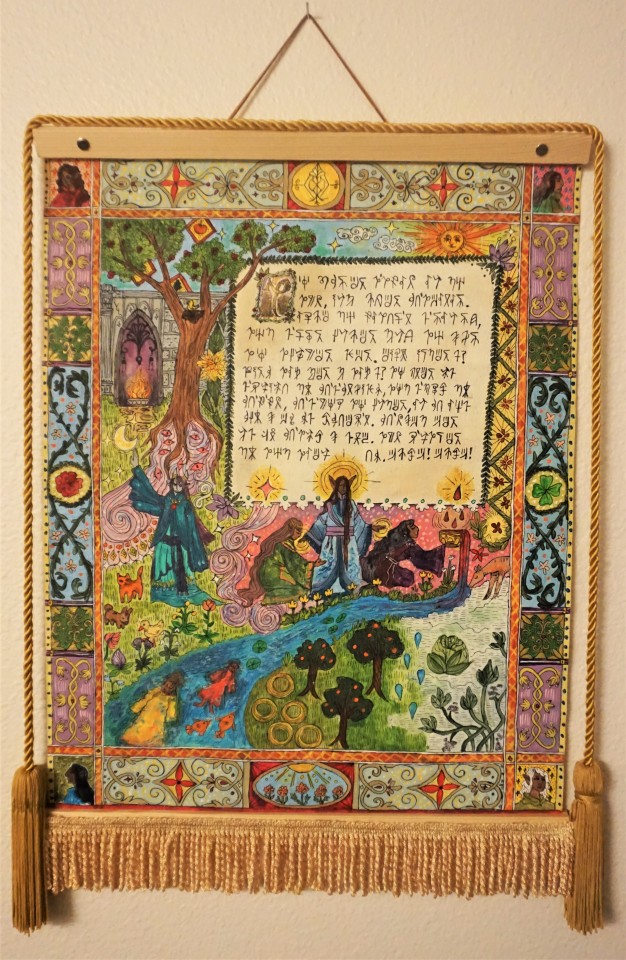
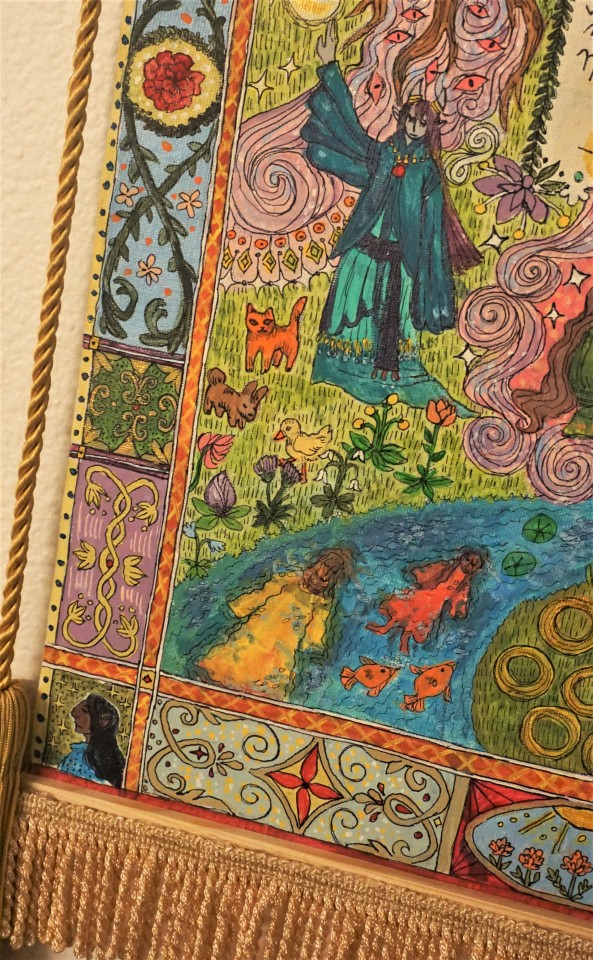
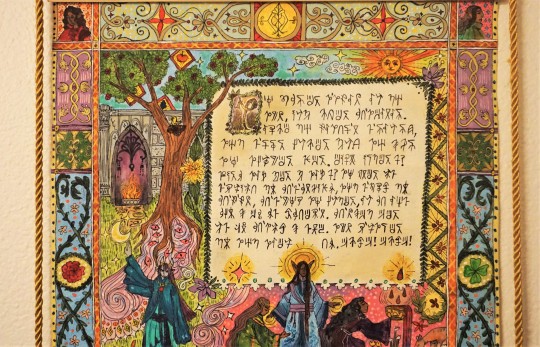
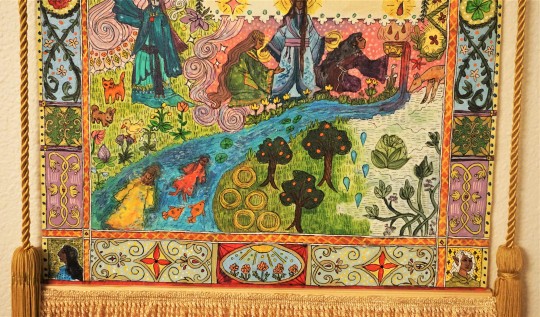
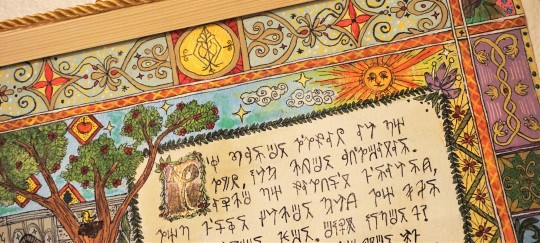
Finally finished my weird hanging painting thing (originally a secondhand partially-done 'paint by numbers' kit that I found at a thrift store and kept to repurpose lol)! Imagery somewhat based in my own worldbuilding projects, and text written in my constructed language for one of my fantasy species, but also vaguely inspired by old tapestries and illuminated manuscripts and etc. I've never been great at neat clean patterning or text, but it looks cool from afar, and I always enjoy making "props" or things that are somewhat like real objects that might could exist in my world. :0
(additional pictures/info under the readmore)
-
Here's what it was originally! I probably didn't have to actually have a river running down the middle because it further makes the composition of the whole thing weird (various connected yet separate locations and things happening, instead of one unified event being portrayed), but I wasn't sure if I'd be able to fully cover up the already existing paint that was there.. and I can also kind of justify it by going with a more "all the imagery is just symbolic so it doesn't have to make exact sense" approach lol.. How is one half of the grass green and the other is suddenly snowy? shhhh.. it's not literal.. shhh...

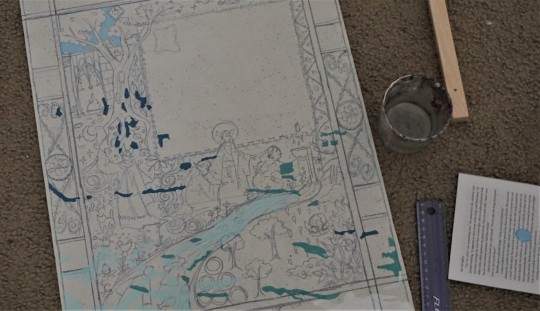
Made a vague sketch, then painted over it, and then added more distinct lines in black pen. Center image first and border second.
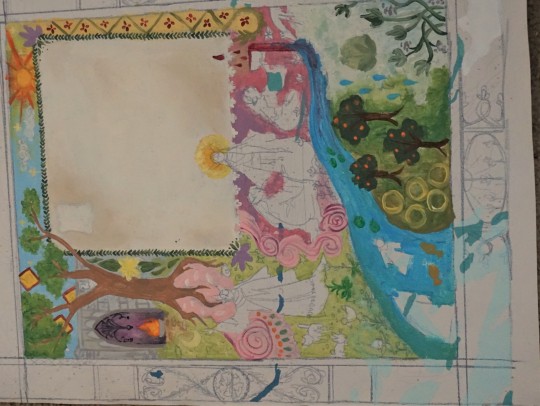
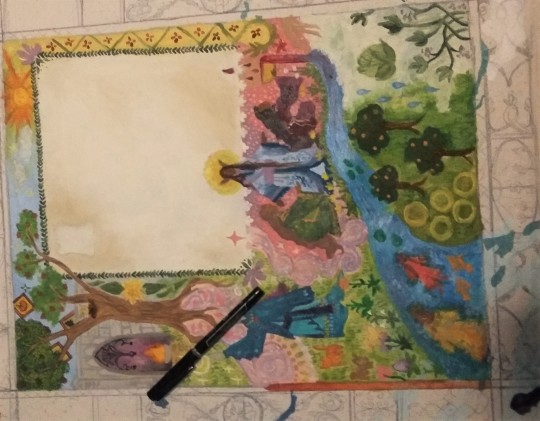
The very last thing was the text, which actually took forever to translate because my conlang is still only like.. partially done, and some of the grammar is not worked out exactly how I would like it to be, so a few sentences I had to think about for a long time before just going "eh, this is probably not how I would do it if I considered it more, but I'll go with it for now" lol . I also am not entirely satisfied with all of the characters for the writing system, but again, it's good enough for a quick project, it doesn't have to be 100% accurate and perfect because it's a fake language that nobody knows anyway lol.
I thought about breaking down the text and translation here like I have for some of the tidbits of Avirrekava (the language) in things I've posted in the past, but I think it would take too long and is not interesting to anyone but me ghghj, so for the sake of getting the post out quickly, I shall not spend an hour typing All That lol.
The general jist of the writing though is that it's just about the Avirre'thel being cast out from the other elves, after abandoning their magic for immortality as a means to truly attain perfection (an important concept in elven culture), the usual, blah blah blah, but how it's Actually A Good Thing, because the gods are wrong and immortality is Cool actually and they like the shitty frozen lands they were sent to, so it's fine that everyone else is being a Hater about it lol
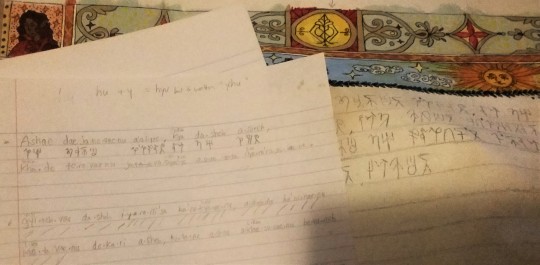
Lastly, here's a few photos outside in the sun to TRY and show the gold detailing actually shimmering or showing up! It really doesn't come through in photos, but there's plenty of little golden spots to highlight light or Importance.
Mostly the fire, the pink sparkle that represents magic, the red drop that represents blood, the light behind Inaashi's hands and head (common symbol for the elven religion/one of their main gods, shout out to anyone who read the ancient elven religion post and recognized that lol), the sun, and the symbol for the Avirre'thel/country of Navyete at the very top. I did a few other gold bits, but they're not highlighted because they're Significant, more just that it looked more symmetrical to have some gold on the border too lol.
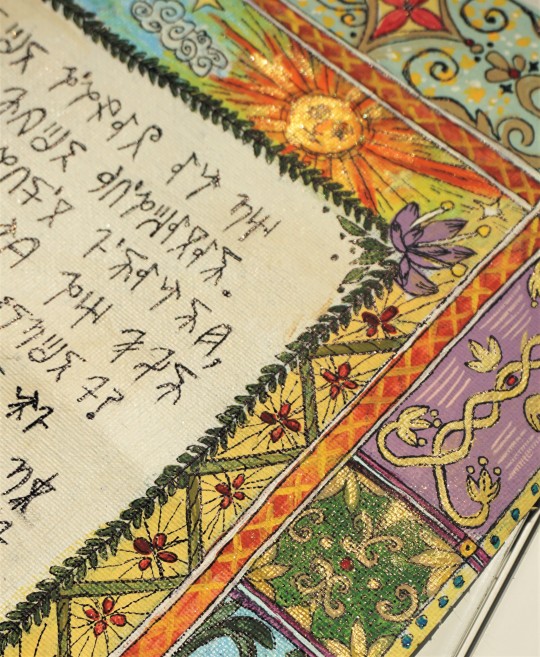
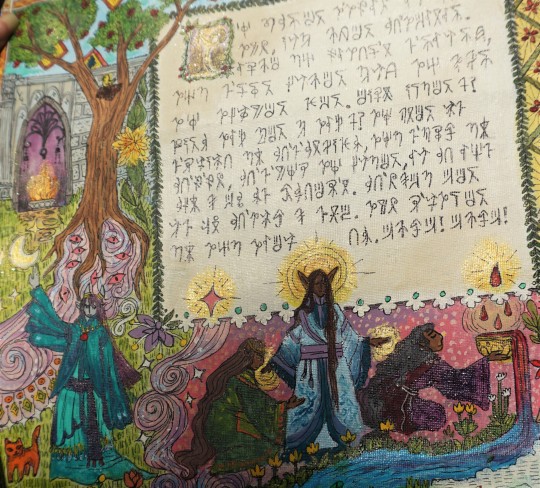
Other things of note: The animals are not actually significant to Avirre'thel culture really, I just wanted to put a cat and a bird because I like them lol. (I also wanted to have a few funny looking creatures, as I was slightly trying to go with the 'in some old medieval painting the anatomy and perspective is very weird' vibe, though I think some of the other parts of it look too Normal to pull it off entirely). Same with the four leaf clover, which means nothing in their culture - but these are the only areas where stuff was just added self-indulgently .
Bligabata (giant cabbage that grows along rivers in Navyete) making an appearance! The architecture of the building IS based on actual concepts for ancient elven/older Avirre'thel architecture and metalwork. The Avirre'thel who's turning away from Inaashi/elves/magic and collecting blood, is doing so in a Special Bowl, as is part of their culture (collecting it in the hands, or just in a normal vessel would be disrespectful, they have Specific Bowls which is the only thing blood can be kept in, etc.).
The figure that represents Jhevona (and thus, a closer connection to magic, celestial imagery, etc.) is in weird ugly teal, which is not necessarily a color or design associated with them, as I don't have much common culture (like clothing) worked out for Northern Jhevona (who the avirre'thel would have come into contact with) yet, BUT everyone else is in more Typical colors (a northern elf in green, Inaashi in lavender + white + blue, an Avirre'thel in darker purples and reds).
Some things, like the four figures in the corners, and the two people + fish in the stream, do not currently have a meaning, but in-world they would.. Like, I could make up lore for how they're culturally significant and it would be true because I am god of the world, but I don't have anything currently. But just know.. they DO mean something, I just haven't decided it yet, maybe kind of fill in as I go, come up with a meaning later lol. Probably along the lines of an old myth from the ancient elven religion, a story, etc.
-
I don't know, probably other stuff, but that's my Trying To Keep It Short rambling for now lol. I'm just glad I finally finished this! For how vaguely sloppy it is up close (everything being completely freehanded, only used rulers once when doing the initial sketch and lining where the border should be + my hands are shaky + the canvas is bumpy + my handwriting is scratchy and terrible + etc. etc.) it still took a REALLY long time, even when not trying to make it all perfect. Especially if including the text translation + writing, which took like 3+ hours itself.
Maybe all the asymmetry/lack of things being centered is NOT because I was too lazy to measure anything, but is actually because in-universe, it's a practice illustration made by some young apprentice who has to work on little canvases for years before he can be trusted will a full sized mural or tapestry. It's his first week on the job! of course he's uncoordinated! don't laugh at him!!! lol
#worldbuilding#elves#I AM WORKING ON A NEW PAVENTURE POST also !!!! I know I keep being like 'oh I'm going to get back to that! I'll stick to it this time!!'#and then another whole month goes by without me posting a new poll adventure - however - this time I DID fully intend to so#*do another one soon but my beloved beautiful perfect cat unfortunately passed away AND there was a heat#wave ANd I felt sick for a while for unrelated reasons so I just genuinely was not focused on posting online at all#I am trying to get back to it though along with other things hopefully so.#ANYWAY#avirre'thel#irithoas#maybe???? not super relevant to elves but I'll keep it intheir tag anyway also. Just since their lore is so closely tied with avirre'thel s#stuff and they're mentioned in the post. Or the gods are. Inaashi is.#OIGUGUGUGUHH I should have done a tapestry with the FCJhjkING triplets!!!!! Sehalanora Semoniyare and the other one whatever the hell#his name is. ... sehalanora my beloved .. (I'm referencing the ancient elven gods - for those who dont know)#It's funny that I rarely watch tv shows and when I do I rarely if EVER care about characters at all in any capacity#with maybe like a handful of even then extremely minor exceptions so I cannot relate to the concept of like 'having a blorbo' or whatever#but then for my extremely niche worldbuilding content#.. it's like OMG MY FAVORITE character!!! my favorite obscure god from a religion#that I entirely made up myself for a cultural group that I also made up that literally only I and maybe like two other#people who are able to sit through my novel long dry and wordy worldbuilding posts care about!! you all know them DUH!!#even WITHIN modern elven culture in the world at the moment in current day most people do not give a shit about them hghj#BUT .. I should have made a painting of the siblings actually!!! I stand by that!!#I mean I like Inaashi and Nisateyu and everything too. Actually all of them are fine except for Ea'ivuyera I guess. whoever the#like War and Order bootlicker god is basically. and the Evil dumbass one. but all the others are fine. I'm suprised I'm even able to rememb#that many ancient elven goofily long names ghgh.. But I could have maybe made it about the elven gods#The thing is just that.. i Don't have ancient elvish worked out as a language and I knew I wanted to put text on it#so it kind of HAD to be something written/drawn by the Avirre'thel#Knwoledge of the ancient elven gods is still a thing in their culture. But usually more as a joke or just a common fairytale knowledge#sort of thing. not really something to make a painting of. Inaashi is here less because of Inaashi The God being genuinely significant and#and more just she's there to Symbolize the elven religion as a whole. just like all the other figures are mere symbols of things. etc.
114 notes
·
View notes
Text
Antireligion leftists are some of the most grating people alive

#Reddit atheists but they pretend they have some kind of moral and/or intellectual high ground by calling your beliefs stupid#You can be an athiest and not call for the cultural destruction of hundreds of unique religions simply bc you grew up christian#If you smugly insist that you cannot be both scientific and religious i reserve the right to backhand you every time#emf#And lets face it 99% of the time these people grew up as suburban christians that just hate christianity & broad brush every other-#-belief under the sun especially non abrahamic religions that they have sub zero understanding of#Obviously not saying religions should be exempt from criticism just saying you can disagree with someone without talking down to them
3 notes
·
View notes
Text
You know as a horror fan "cultural Christianity" is such a useful term because as an atheist as well as a horror fan and a fan of haunted house stuff if it's done well I very, very quickly noticed how many horror movies are Christian propaganda. So few horror movies involving religion (which is a shocking amount of them btw) pick any religion that's not Christianity to center itself around and when they do that religion is bad and evil, not the cause of evil and the savior from it (because the demons may be Christian, but God and the bible are also the solutions in a way other religions aren't granted. Bonus points if it's an indigenous religion being portrayed as Evil and Bad).
Pretty much any exceptions I can think of to that rule use Judaism and the Holocaust as a backdrop and never in like a normal, the Holocaust is horrible way it's always playing on myths of Nazi Germany's experimentation on the Jewish population. Which I find highly troubling and disturbing, but regardless nothing like being a horror fan to convince you of cultural Christianity because no other genre leans on religion as a plot device so much unless it's straight up a Christian movie for a Christian audience using Christianity as it's main theme and through line.
#winters ramblings#side note i ALWAYS hear about how we learned SO MUCH about medicine and the body from nazi Germany and i KNOW that has to be#at least SOMEWHAT untrue because the methodologies nazis would have used in CONCENTRATION CAMPS do not seem#like theyd yeild USEFUL information about anything. people criticize studies now for being overly populated with undergrads#because THAT skews your results theres NO WAY the camps had conditions good enough to yeild useful information#and theres NO FUCKING WAY IN ALL HELL that nazis had good enough methodologies and treatments of their PRISONERS#to be getting any result worth using. maybe we learned a lot on how to TORTURE people but medical sciences??#i think body snatchers orobably taught us a lot LOT more than the fucked up things the nazis did to the jewish population#and i find it DEEPLY DEEPLY troubling that we seem to remember the nazis like the NAZIS want us to remember them#and not as the scum of the earth they were- they werent useful DOCTORS even if there were olenty of useful engineers but they werent good#engineers BECAUSE they were nazis they were just good at their jobs WHY do we attribute their intelligence to BEING A NAZI#if anything thats proof all their smart at is building shit but anyway something tells me nazi germany didnt teach us NEAR#as much about medical anything as the myths lead us all to believe and WHY are we myth making about FUCKING NAZIS#time to start myth making the jewish people who survived or did uprisings or literally ANYTHING but the fucking nazis#now on the flipside as a horror fan Christianity is SO BAKED IN to how certian genres of horror run#if you had a haunted house movie WITHOUT Christianity id be genuinely surprised. if it wasnt at least Judaism with Weird Holocaust shit#id be even MORE surprised. ive never seen a weesterm horror flick that centered around like. Sikh people or even Muslims#and youd think being an abrahamic religion Muslims would make the cut but no even THEY get shunted because brown#like you CANNOT convince me culture Christianity doesnt exist because as an athiest horror fan BOY do i know thats not true#its actually one of my LEAST favorite things about the horror genre and WHY i have a hard time with haunted house movies#sure i LOVE james wans work but its STILL uses Christianity as a plot device and i HATE Christianity in my horror cheerios#plus you got shows like supernatural who LITERALLY wrote a show of bible fanfiction and uts very clear they never read the bible#i know this because i have a good friend who is religious and even CHRISTIANS find the Christianity in that show baffling and overbearing#and hilariously inaccurate but still lmao. anyway cultural Christianity is 100% a thing as an athiest its IMPOSSIBLE not to notice#so i find it REALLY WEIRD that athiests deny its existence as if weve not been victims of it out whole lives#and religious people who arent Christian too!! we should team up to beat the christians back to where they should be!!#just as invisible as the rest of us OR the rest of us just as visible as christians!!
15 notes
·
View notes
Text

I think this is a purposeful misrepresentation of what feminists are actually talking about. Furthermore, this argument cannot simply be dumbed down to be just “clothing choices”.
Modesty culture encouraged by religion and sexual objectification encouraged by porn are both degrading to women as a class and are two sides to the same coin (the coin being patriarchy). You have to look at the effects these things have on women as a whole and not just on the individual. This is the flaw with choice feminism; every women’s individual choices can be said to be feminist because she “chose” them, without regard to where that choice actually came from.
It’s very clear from the above comic that the OP is purposefully rewriting our arguments to make it sound absurd. The act of being fully clothed from head to toe or butt naked is not what is being criticized; prostitution, porn, religion, and patriarchal oppression is what is being criticized. It’s worth criticizing and it’s worth dismantling.
#feminism#radblr#radical feminist community#radical feminism#womens liberation#women's rights#radical misandrist#radical feminst#reproductive rights#human rights
845 notes
·
View notes
Text
ORORUN REDRAW GUIDE !
i think we’ve all seen the atrocity that is genshin’s unreleased character, ororun. the entirety of natlan is a mess really, but as a yoruba person myself i CANNOT keep quiet about ororun specifically.
outside yoruba mythology, in yoruba, ‘Olorun’ (the name ororun is based on, pronounced o-law-roon , with o pronounced as in orange and the ‘roon’ pronounced shortly, not dragged on at all) is actually the same word we often use to refer to God in Christianity. Christianity is the primary religion among us yorubas so honestly, i was kinda glad they misspelled his name. it would feel SO disrespectful referring to whatever that thing is with the same word we use to refer to God who we actually worship. religion aside, genshin’s depiction of Olorun (cultural god, not Christian one) is downright disgusting. i’d never paid too much attention to genshin and its poor representation, but now that my culture has fallen victim to it, i completely understand all the outrage.
edit: please note that while we use ‘Olorun’ to refer to the Christian God, Olorun is just a general word for ‘god’ itself ! for example if i say “God in heaven” and “god of thunder” we know i’m referring to two different beings, in yoruba it’s the kind of the same—the same word is used to refer to both the Christian and other gods, but we know it’s different, even though olorun can be capitalized regardless of what god we’re talking about (unlike english where the Christian God is capitalized and other gods aren’t) at the end of the day though, when we say “olorun” even without context, we are usually referring to the christian God !
1. PLEASE DO NOT DRAW HIM WITH ANIMAL EARS !
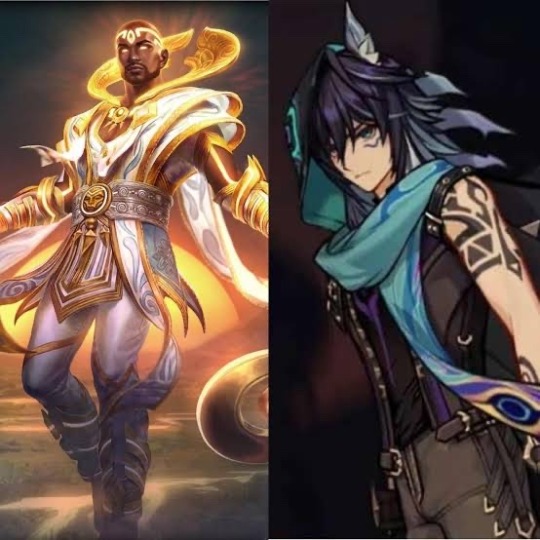
i’ve noticed that hoyoverse has this nasty habit of portraying every dark skinned character as wild or animal-esque. kaeya seems to be the only exception to this. even xinyan, though lacking any animal features, has this wild energy to her. some might call it a stretch, but i feel like her features are pretty feline in comparison to other liyue characters.
Olorun in our culture is the supreme god of the heavens. In my opinion, it is disrespectful to liken him to something akin to an animal. normally i wouldn’t even mind that much, but with how hoyo makes its few dark characters more and more like animals, i can’t help but feel weird about it. its really off putting.
2. HIS HAIR WOULD NOT BE CURLY !

majority of nigerians have 4C HAIR. not wavy hair or loose curls. some have 4B, but 4C is the usual here, that is, kinky or coily hair. Olorun is often portrayed as bald in traditional art, but trust me if he had hair his hair would resemble his people’s, not Tyla’s.
DREADLOCKS ARE A YES ! outside nigeria, locking hair is pretty common, but in nigeria a lot of people have locks naturally. our hair sometimes just grows out that way, no treatment no nothing. dreads are 100% an appropriate style, they look good asf too.
3. PLEASE USE CULTURAL FABRICS IN YOUR DESIGNS !
when i saw ororun’s outfit, i almost started crying. they couldn’t even bother to dress him up a little. they really dressed my brother in a scarf and cape and called it a day 😭 upon how fashionable we nigerians are know to be, hoyoverse still made it their mission to embarrass us stylistically. God knows my people have suffered man 😭
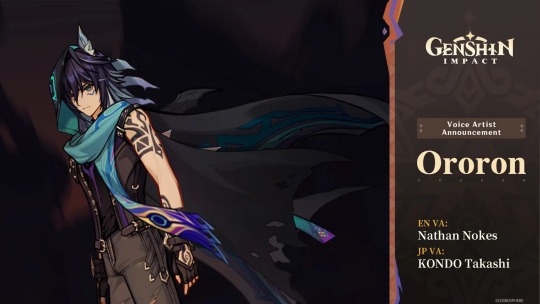
ankara is a traditional nigerian fabric that features bright colors and lots of patterned designs. see below:

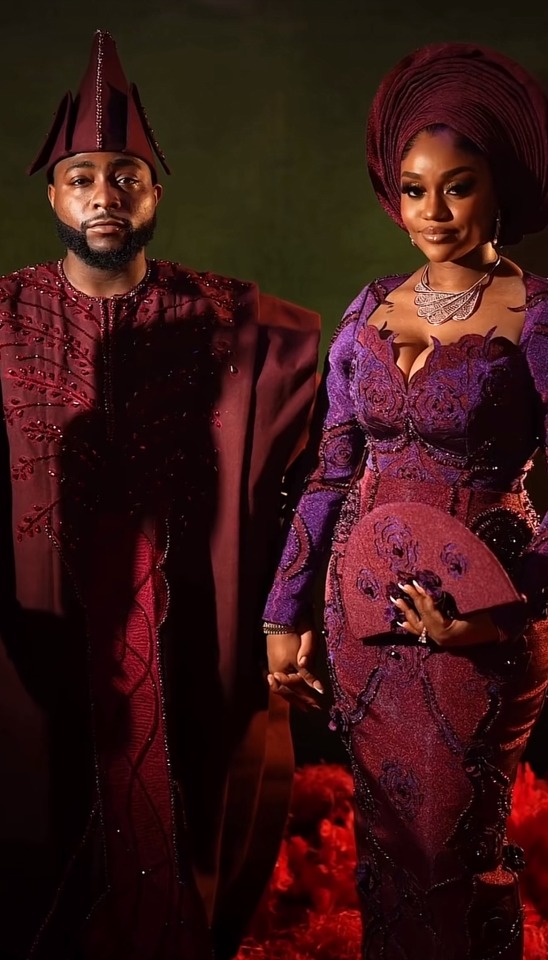
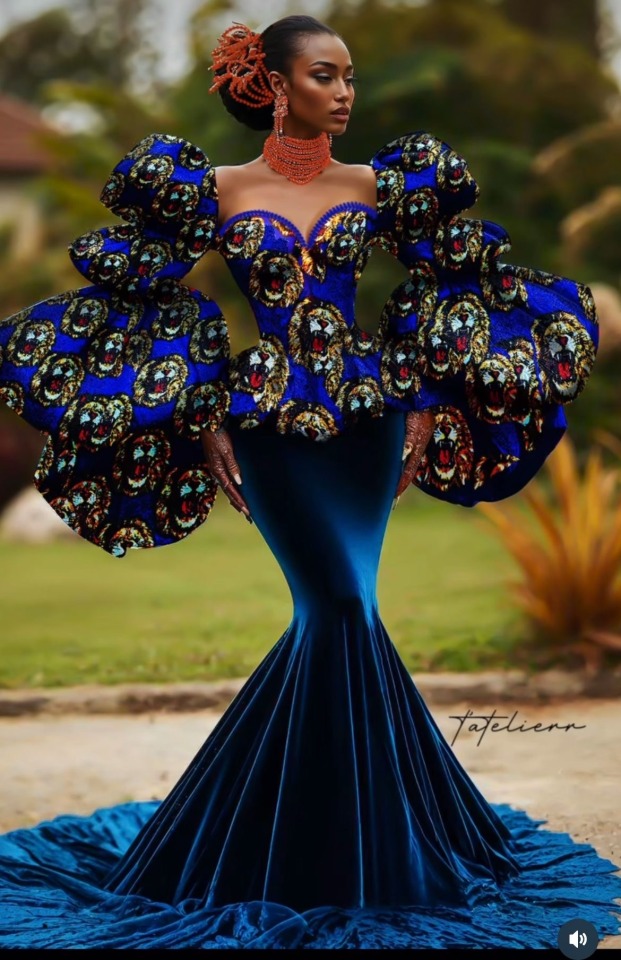
here in 9ja, we love our ankara. it’s a big part of our fashion here and trust me it would look excellent in your designs. it’s perfectly fine to draw ororun in normal fabrics since he’s a deity and it’s not like ankara existed back then, but if you really want to represent nigeria, ankara is a must 🙏
i’m going to address another fashion piece because if you search up nigerian fashion you’ll see it a lot: beads.

these orange beads are igbo (another tribe here in nigeria) NOT yoruba. does this mean you can’t use it in olorun’s design ? no ! let me explain. tbh, here in nigeria there’s a bit of...tension between clans. it’s not that common, but older people are definitely a lot more tribalist. as a yoruba i love my igbo brothers and sisters, i truly believe they’re the most fashionable clan and i adore their festivities, they always go over the top. please, just look at them:
(only one image because of image caps, ugh)
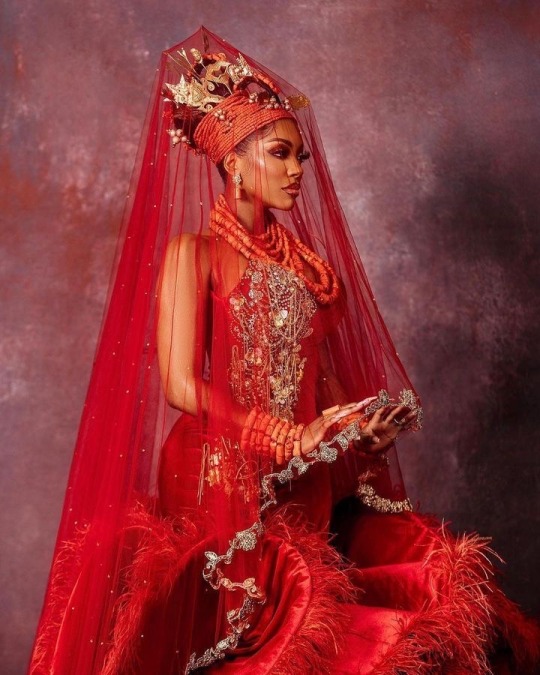
anyway, we yorubas wear beads too. but the specific way the beads are worn around the head and in multiple layers round the neck is igbo, not yoruba. though i personally wouldn’t care too much if i saw olorun with igbo beads since all i want is for him to at least look nigerian, at the end of the day he is a yoruba deity. it might be disrespectful to dress the god of one clan as if he belongs to another, especially since there is so much historical ( and very slight but uncommon present ) day tension between both clans.
here’s a more yoruba outfit. sorry yall, it might be hard for you to distinguish if you’re not yoruba or igbo, but a lot of nigerians can tell the difference at a glance. ( actually nowadays, there is so much overlap between yoruba and igbo fashion, but there are many specific styles that may be associated with one tribe and not the other, for example how beads are worn in the above paragraph ) please do your research, he’s not only a nigerian god, but a yoruba one.
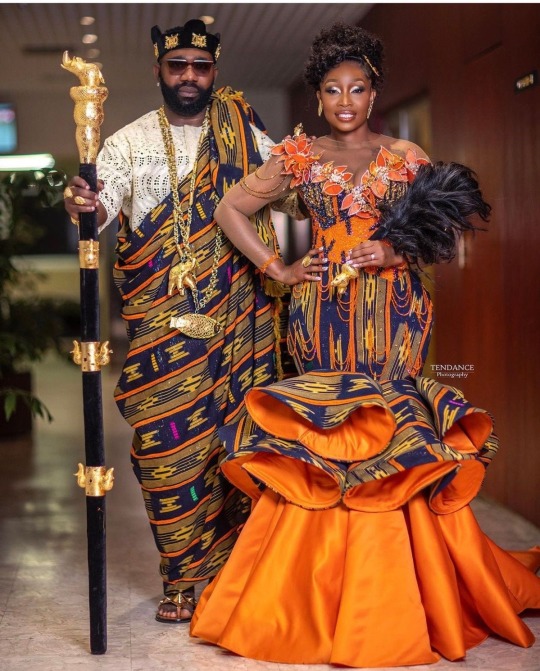
one more thing, because i know it will start discourse : skin tone.
nigerians have a very diverse range of skin tones. some of us are so pale, if not for our afrocentric features we could maybe pass for another race. however, ororun is yoruba.
light skinned nigerians are usually igbo. not to say that yorubas can’t be light skin, but here in nigeria if you saw a light skinned person, we’d automatically assume they were igbo. igbo people usually have lighter skin tones. majority of yorubas fall on the more milk to dark chocolate end of the skin tone spectrum. i’m saying this now because i know a lot of people are going to start arguments over ororun being redrawn as ‘too light’ or ‘too dark.’ i don’t really care about complexion, but i thought i’d help you all get your facts right.
that’s it ! if you read all this i’m super thankful. i don’t usually post about this kind of stuff but i honestly love my country and could go on about it for days. nigeria is such a beautiful place with a diverse range of cultures— from hausas to fulanis to so many more. natlan was supposed to be Africa’s time to shine, as well as latin americans, but hoyoverse said fuck you and your people. they did this to an extent with sumeru but natlan was done straight up dirty—not a single melanated character in sight, and the only one who does have melanin, iansan, looks so desaturated you might as well call her grey. i saw someone on tiktok call mualani a dark skinned character—it was at that point that i knew genshin was done for.
please REBLOG this post so it reaches more people and artists in the fandom !! this is literally the third time i’m making this post because tumblr refuses to show it in the tags for some reason 😭 i encourage other cultures who feel misrepresented to make posts like this too. it’s a perfect opportunity to educate and inform people about the diverse cultures genshin has once again failed to represent properly.
Hoyo has never been one to make customer satisfaction their top priority, but we’ve been able to call them out before and i truly believe we can do it again. Natlan is not poor design choice. it is blatant racism, a nation based on POC ethnicities with not a single colored character insight. Hoyoverse has been able to escape racism accusations for as long as i can remember, but natlan is the icing on the cake. we CANNOT allow hoyo to proceed as planned without giving them the appropriate backlash.
Also, if you redraw ororun using this guide, make sure to tag me here or on my main blog, @heartkaji !! i’d love to see all your redesigns. once again, thank you all for reading and have an amazing day !!
#REBLOG REBLOG REBLOG !#genshin#genshin impact#sumeru genshin#genshin sumeru#genshin natlan#natlan genshin#genshin oc#genshin fanfic#genshin fanart#genshin spoilers#genshin leaks#mihoyo#hoyoverse#genshin ororon#genshin kinich#kinich#mualani#mualani genshin#honkai star rail#honkai fanart#honkai sr#honkai impact 3rd#honkaiedit#hsr#hsr fanart#genshin redesign#sumeru#natlan#( 🛁— !! )
886 notes
·
View notes
Text
I do realize this is a real niche post but I cannot tell you how many damn times over the past 10 months I've seen gentiles tell Jews some version of, "Your own holy book SAYS God doesn't want you to have a country yet!"
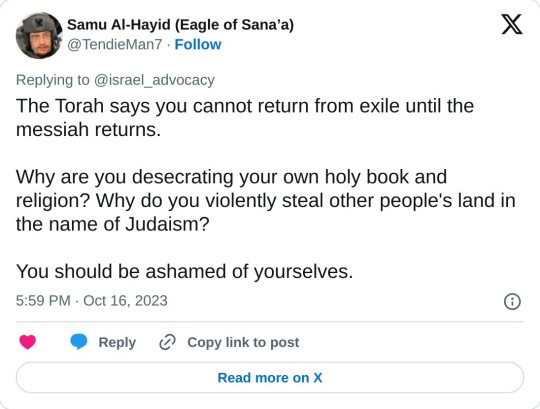
And it's such an incredibly blatant and weirdly specific tell that they're not part of something that grew from progressive grassroots, but something based on right-wing astroturfing.
1. Staying in your own lane is a pretty huge progressive principle.
Telling people in another group that their deity said they couldn't do X is, I think, as far as you can get from your own lane.
2. It's also very clearly Not In Your Own Lane because I've never seen anyone actually be able to EITHER quote the passage they're thinking of, OR cite where it is.
It's purely, "I saw somebody else say this, and it seemed like it would make me win the debate I wasn't invited to."
3. It betrays a complete ignorance of Jewish culture and history.
Seriously? You don't know what you're referencing, its context, or even what it specifically says, but you're... coming to a community that reads and often discusses the entire Torah together each year, at weekly services... who have massive books holding generations of debate about it that it takes 7 years to read, at one page per day....
And saying, "YOUR book told you not to!"
I've been to services where we discussed just one word from the reading the whole time. The etymology. The connotations. The use of it in this passage versus in other passages.
And then there is the famous saying, "Ask two Jews, get three opinions." There is a culture of questioning and discussion and debate throughout Judaism.
You think maybe, in the decades and decades of public discussion about whether to buy land in Eretz Yisrael and move back there; whether it should keep being an individual thing, or keep shifting to intentional community projects; what the risks were; whether it should really be in Argentina or Canada or someplace instead; how this would be received by the Jews and gentiles already there, how to respect their boundaries, how to work with them before and during; and whether ending up with a fuckton of Jews in one place might not be exactly as dangerous for them as it had always been everywhere else....
You think NOBODY brought up anything scriptural? Nobody looked through the Torah, the Nevi'im, the Ketuvim, or the Talmud for any thoughts about any of this?? It took 200 years and some rando in the comments to blow everyone's minds???
4. It relies on an unspoken assumption that people can and should take very literal readings of religious texts and use them to control others.
And a sense of ownership and power over those texts, even without any accompanying knowledge about what they say.
It's kind of a supercessionist know-it-all vibe. It reads like, "I know what you should be doing. Because even if I'm not personally part of a fundamentalist branch of a related religion, the culture I'm rooted in is."
Bonus version I found when I was looking for an example. NOBODY should do this:

There are a lot of people who pull weird historical claims like "It SAYS Abraham came from Chaldea! That's Iraq!"
Like, first of all, a group is indigenous to a land if it arose as a people and culture there, before (not because of) colonization.
People aren't spontaneously spawning in groups, like "Boom! A new indigenous people just spawned!!"
People come from places. They go places. Sometimes, they gel as a new community and culture. Sometimes, they bop around for a while and eventually assimilate into another group.
Second: THE TORAH IS NOT A HISTORY TEXTBOOK OMFG.
It's an oral history, largely written centuries after the fact.
There is a TON of historical and archaeological research on when and where the Jewish culture originated, how it developed over time, etc. It's extremely well-established.
Nobody has to try to pull what they remember from Sunday school for this argument.
#jumblr#Jewish history#hamas propaganda and fundie Christian propaganda are a terrible mix#fuck hamas#depressing discourse#wall of words
611 notes
·
View notes
Text
I already regret making this post, but I think this needs to be a real discussion.
** Please note: I 100% do NOT want goyische opinions on this post. I am not interested, they are not helpful, and I will block you without hesitation even if we've been mutuals forever **
I think we have reached the level of Holocaust inversion on the left that we actually need to recalibrate the entire way we engage with an alarming amount of leftist goyim, because they have decided that their twisted understanding of Zionism as a form of 'apartheid genocidal ethnonationalist fascism' is on the same level as the Nazis.
Now regardless of how that makes you, as a Jew feel, that is how a lot of them are viewing this, period.
That means that you should assume that every single "we punch Nazis, not debate them" anti-fascist principle out there can be applied in full force to Zionists [with the understanding that their definition of Zionist usually means every Jew they don't like or agree with or who doesn't perform their brand of politics to the level they are asking]
Remember that video of an actual, real elderly Nazi that just croaks in the middle of his hateful yelling that went viral? Remember how happy people were when Richard Spencer got punched? Remember the whole "the only good Nazi is a dead Nazi" slogan? That whole idea that you cannot debate white supremacists and fascists because that inherently means debating your humanity and makes their position seem valid enough to debate?
Yeah. For these people, all of that applies to Zionists [and whoever they decide to label as such]
So yeah, an older guy protesting got killed? Same reaction as yelling Nazi dude above. Shrug.
A brutal massacre of Israelis and their neighbors that wiped out 1400 men, women and children? Imagine that some group managed to do that to 1400 Nazi families. We might find the sadistic nature of the deaths distasteful, but really: how many tears are you shedding?
Civilian population centers of primarily Jews are under constant missile shelling and bomb threats? Imagine that we were talking about Nazi Germany instead. Sucks for them I guess, right? 🤷♀️
Their reactions to recent events ranging from silent apathy to outright glee all make sense once you play a Mad Libs game of filling in "Zionist" or "Israeli" in place of "Nazi" or "fascist" in every "punch Nazis!!!1!" slogan.
The fact that Jews are and have been frequently the targets of these fascist groups throughout history and were the primary targets of the Nazis is irrelevant. The fact that we are human people who just want to practice our ancient religion and culture in peace is irrelevant. The bottom line is that the far goyische left has now figured out a way to fully de-person Jews in a social justice approved way, without even the ability to point out how utterly unhinged and counterfactual that take is because "we don't debate Nazis."
I don't know how to fix this.
Genuinely, I don't.
It's like the spirits of their pogrom-loving ancestors have gripped them and instead of whispering "the Jews killed Jesus, poison wells, and thirst for the blood of children," they just substitute out Jesus for Palestine.
1K notes
·
View notes
Text
6B4T
Lately there has been talk about 4B and so I wanted to bring up 6B4T which grew from the South Korean 4B movement, and specially the 6B4T movement as it is practiced by our Chinese sisters. Before that however differences between the both are as followed:
4B
No sex with men
No giving birth
No dating men
No marriage with men
6B4T
Includes the original commandments of 4B and adds the following:
Don’t buy products from misogynistic brands
Support single women/women that have chosen to be celibate
Reject the corset (rejecting toxic beauty standards)
Reject idol culture (as in male-worship and idolization of entertainment figures this ALSO includes rejecting idol culture for female kpop idols/entertainers)
Reject otaku culture (rejecting misogynistic anime culture)
Reject religion
(**You may see 6B4T referred to as 10bt to avoid censorship as CN social media sites are heavily monitored by government censors, even outside of CN social media CN sisters will still refer to it as 10bt because 6b + 4t = 10bt)
Now that there's a basic understanding... I wanted to talk about some of the differences that the CN 6B4T movement has compared to what I usually encounter in English speaking radfem circles. Please note that this is my own experience and as with any political movement there can a myriad of women that agree and disagree (except on the 6B4T principles as a whole, those are rock solid for them haha.)
I was first aware of this movement around 2020 and have been following women on twitter/x since then that follow these beliefs. All of this has been gathered from tweets by 6B4T users on twitter/x + interactions with them. I am not a CN speaker and have used translation apps to piece together details on the 6B4T movement and have cross referenced this with some of the writings I can find in English about this and the conversations that I have had with some of the 10bt sisters that were willing to interact with me.
I do not feel comfortable just singling out specific accounts for people to look up on twitter but anyone that wants to do their own research can search the keywords on twitter 6B4T or 10bt and go under the "People" filter to populate accounts of CN women that have 6B4T and/or 10bt in their bio.
One thing that I want to talk about right away - the term donkey. It will come up quite often when you search 10bt accounts and is used to describe women that are perpetuating patriarchy because they "carry the patriarchy without protest and allow themselves to be exploited." (This includes married women.) 10bt sisters DO NOT have an emphasis on educating women that perpetuate patriarchy. You can find sayings such as:
"Feminism is like being given a weapon to support yourself with, do not use it to commit suicide by having a complex of saving donkeys"
“Don't do donkey work for donkeys".
“Don’t get derailed by women support women, leave the donkeys alone.”
Which leads me to the next point - 10bt sisters are for empowering women independently. There is obvious acknowledgement of bonds and relationships between women but the general feeling is more to focus on the individual self, connections are based solely on shared interests and can be let go of as needed. (I have also seen discussions of letting go of romantic ties not just for straight sisters but for lesbian sisters as well.) Sentiments such as "focusing on oneself is a foundation for a happy life" "All thoughts and ideologies cannot be separated from down to earth efforts and dedication" are plenty. Really a focus away from "altruistic" causes so to speak
And on that note: anti veganism. 10bt sisters in general are adamant that 6B4T principles should only include tackling patriarchy and not have other causes added to it. Anti veganism sentiment also seems to stem from certain aspects in CN culture of serving smaller portions to young girls and discouraging them to eat meat as opposed to men. The focus on improving one's self from before also shows up here: "Women need strength to overthrow patriarchy, only then should we focus on improving the lives of animals."
Some 10bt sisters are also very open about criticism and believe women that openly identify with the 10bt movement should be prepared to have their posts critiqued, and while some will debate this... one of the things that is absolutely non negotiable is that actions MUST back up words. There’s lots of debates that go on in the 10bt movement but the bare minimum is that if you follow 6B4T then you must follow its core beliefs otherwise what are you here for? There is a huge disdain for those that say they belong to this movement but don’t follow its beliefs.
With that being said, how do the 10bt sisters feel about 4B taking off in the states? Well…
“4B grew into 6B4T and they only dared to do half of the movement? It’s disappointing.”
“At this point in time, it is crazy to deliberately go back and start from 4B. You have someone’s shoulder to stand on but you won’t take it.”
“4B: No marriage, no giving birth , no sex, no dating. Doesn't that mean they are still serving as donkeys: supporting idols and otaku, believing in religion, using pornographic content, and consuming misogynistic brands... It really makes one recognize by a glance what stupid things they are still doing.”
“I don't understand how this kind of castration of the feminist movement came about.”
Is some of the general consensus on twitter/x.
Two more things I will add here before I wrap this up:
I have seen a post in English about other principles to follow such as 5B, 7B or 8B. I am not aware of what these principles are and could not find a CN source to confirm this so if 5B, 7B and 8B do exist, I do not believe it originated from the CN movement.
There is also the concept of icing men out aka if a man comments on your social media posts immediately delete the comment EVEN if it is a comment in agreement. For this while I also could not find a specific CN source for the 10bt sisters, it feels like it is just natural to not interact with men. I have yet to see debates on whether someone can be part of 10bt and still have a boyfriend, husband, etc since the answer will always be a resounding NO. (And on this note… if you are curious about attitudes towards male family members.. rejection of filial piety is something that is very agreed upon. I would recommend first learning what filial piety entails in CN culture as whole if there is curiosity about this.)
I will wrap this up with one of my favorite concepts I have encountered from our 10bt sisters:
“When one woman keeps house*: five women are trapped: herself, daughter, mother, sister-in-law, and female coworkers”
[*keeps house meaning - “when one woman marries…”]
If there are sisters out here who are involved with this or have more info to add please feel free to do so! Also would love to get in touch with any that know more on the CN 10bt movement.
163 notes
·
View notes
Text
ATSV Fun Fact!! - Mumbattan Cultural Details
Gayatri & Inspector Singh follow the Sikh Religion
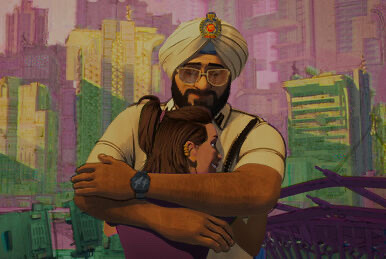
Have you ever heard of Punjabi Sikhs?
If you don't know - Sikhism is a religion that originates in northern India, specifically Punjab.
The turban Gayatri's father wears - along with his last name 'Singh' implies that her father is most likely a Punjabi Sikh.
I notice this the first time watching ATSV and was like 'wow that's so cool :)'
It only hit me today that 'Oh wait I don't think a lot of people know about this very-specific, rarely-mentioned religion maybe i should say something,'
And because I LOVE yelling about world culture, LET'S GO!!!
[a SHORT essay where I explain the basics of Sikhism, a religion built on equality and justice. And details in The Singhs design, and exactly why Sikh Representation matters]
So What's Sikhism about?
Often mistaken for Muslims - Sikhs are actually a non-Abrahamic religion, with 20 million followers worldwide.
But even with so many visible practicing members, most people know very very little about this beautiful religion!
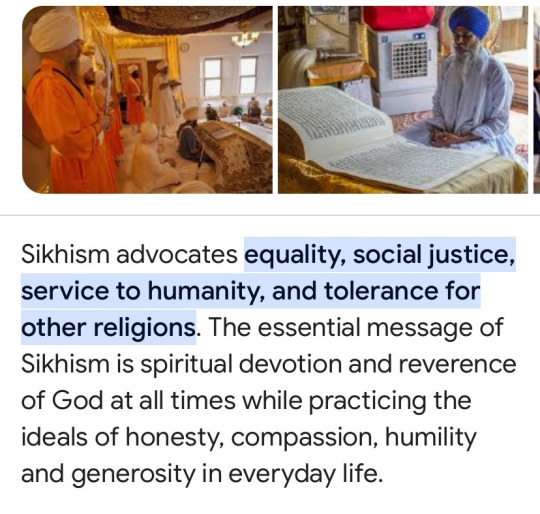
Sikhs believe in equality and unity - and defending the oppressed. Their book of faith, The Guru Granth Sahib Ji, is called 'Guru' for a reason - Sikhs see the book as not just a code of conduct, but as a living, breathing teacher for every practicioner;
From Wikipedia on Guru Granth Sahib: Sikhs since then [1708] have accepted the Guru Granth Sahib, the sacred scripture, as their eternal-living guru, as the embodiment of the ten Sikh Gurus, the highest religious and spiritual guide for Sikhs. It plays a central role in guiding the Sikh's way of life.
The Guru Granth Sahib is the spiritual leader of Sikhism, and it's treated as such.

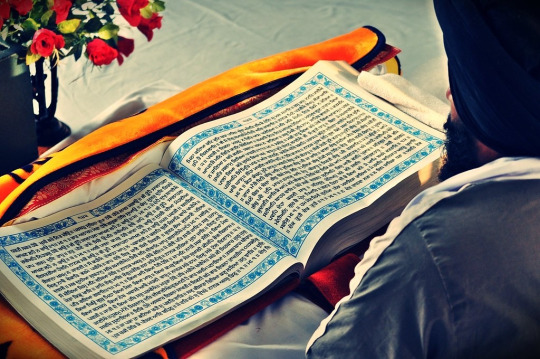

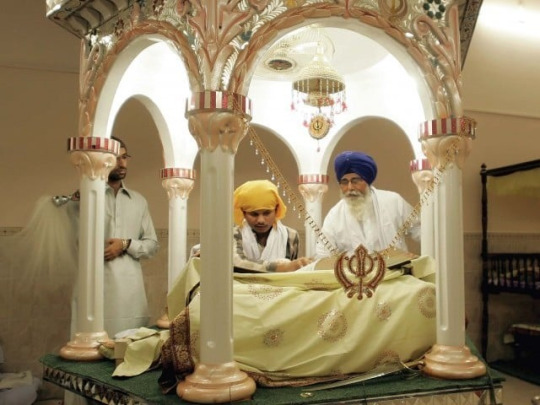
That's why in Gurdwaras - their place of worship - it's treated as such, being clothed and held in ornate structure, constantly fanned throughout it's readings (the fan you can see in the left picture).
They believe that by following the Guru Granth Sahib Ji, they can cultivate compassion, peace, and harmony in their communities, while diminishing 'Mara' - concepts like hatred or violence.
Sikhs believe that every Sikh should revere themselves as champions of unity. And because of this many Sikhs have the same last name -
Kaur for women (Meaning Princess) and Singh for men (Meaning Lion).
Having the same last name also does away with the Indian caste system, making it another point of equality.
In ATSV Gayatri last name is Singh. However from my understanding, her name would most likely be Gayatri Kaur in reality.
I think they kept her last name as Singh as a deliberate choice to keep her initials as GS, like Gwen Stacy.
So is Gayatri Sikh?
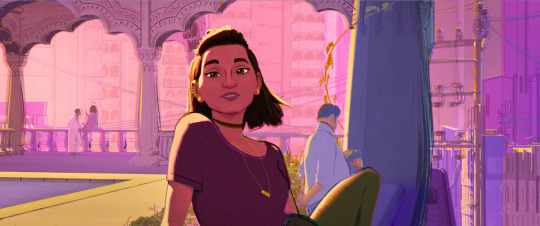
Maybe - most likely.
But we can't be sure. Mainly because of her hair.
Gayatri has a short bob haircut, and while that might not seem like it matters, it does!
In Sikhism there are the '5K's - different aspects Sikhs wear to show their faith.
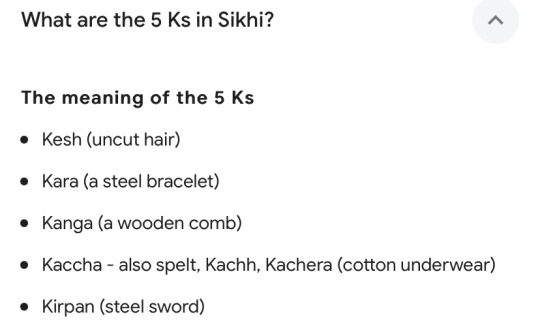
Notice the first one?
'Kesh' is the practice of leaving ones hair completely uncut. That's why you may see a lot of Sikh men with long, long beards!
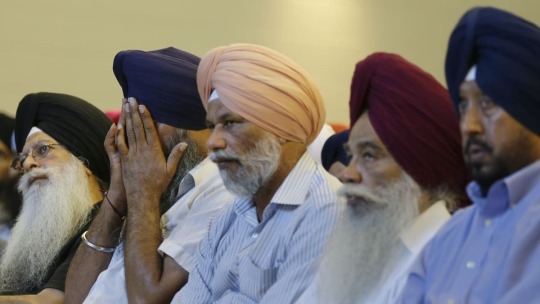
And hence, the large turbans.
It's done as respect for God's creation - leaving it unaltered.
[Fun Fact! - Rastafarians, a Jamaican religion, also don't cut their hair for this reason. Think Bob Marley. Rastas call God - Jah]
So, Gayatri having short hair means she doesn't keep Kesh.
However, Sikh is a super accepting and open religion, and it's main focus is on acceptance of difference, not conformity - so she could entirely follow the faith without doing all of any of the 5Ks.
Also, if you're curious about the steel sword K - Kirpan, yes that's a thing!

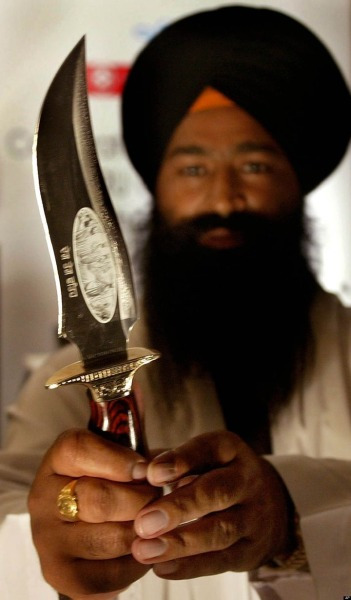
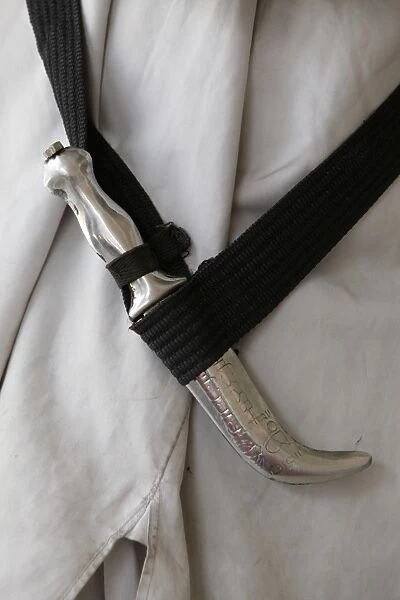
Sikhs of all genders are encouraged to carry a small ceremonial blade with them.
Instead it's a symbol of the commitment to fighting for what's right - and defending those who cannot defend themselves.
A Kirpan can ONLY be used to defend the life of yourself or others, which is incredibly rare.
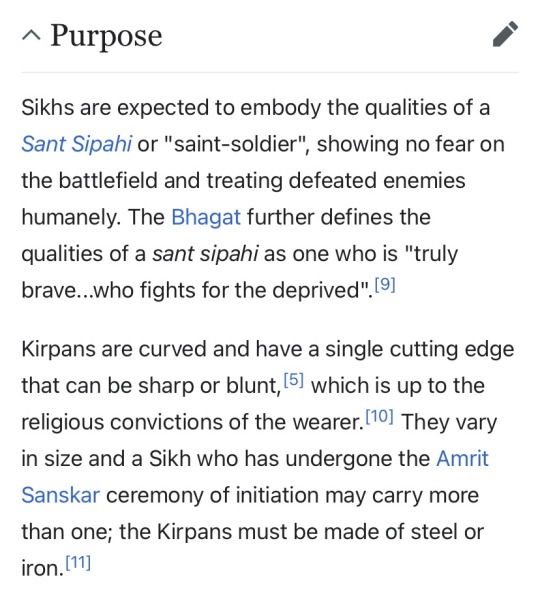

Why is this all so rad, cool, and important?
If you haven't noticed by now, Sikhism is a religion driven by justice. Not just in theory, but in really life as well.
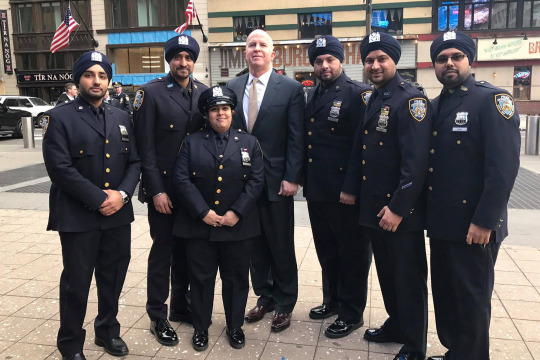

That's why you may see many Sikh police officers and politicians, even here in the West. Most of them wearing the emblem on their turbans.
In fact, Canada has SO MANY Sikh politicians, that in 2019 they elected 18 of them.
For centuries Sikhs have been dedicated to justice, and developing systems of support, whether that be political involvement or feeding those in need.
The biggest Gurdwara (a place of Sikh worship) The Golden Temple feeds over 100,000 people A DAY.
For FREE.
It's a practice called Langar. A communal meal anyone can enjoy. And of course, Langar food is vegetarian.
Making Inspector Singh a Sikh - and showing him saving people and being warm to his daughter on screen is great representation for a community so often overlooked! Despite the fact they are over 20 million practicing Sikhs.
It's a great detail for Indian and Punjabi representation in specific. It accurate shows their beliefs and commitment towards helping others, no matter the cost.
And from what we can tell, this choice came later in development. We know this because ALL of his concept art shows him with a turban, not keeping Kesh.
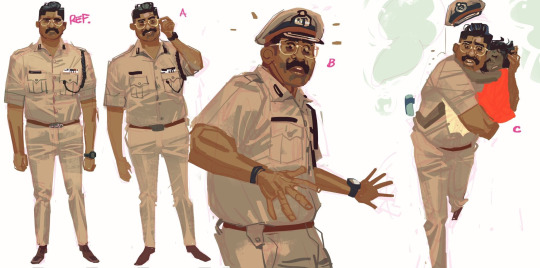
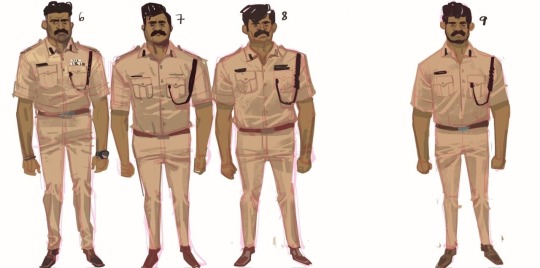
It seems like someone later on down the line said 'Wait if his name is Singh I think he's Sikh and if he's Sikh then we're gonna have to redesign him and make that obvious oops'.
That, dear audience, is why you always have an Anthropologist in the writing room. Or some amateur anthropologist like me :)
-------------
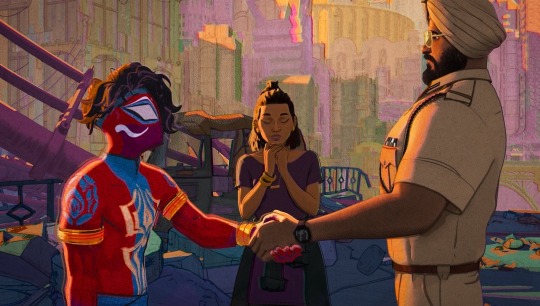
I hope you enjoyed reading this, I really enjoyed writing it!! Sikhism is one of my favorite religions and if you have never heard anything from the Guru Granth Sahib I HIGHLY recommend it, it's very optimistic and compassionate. Sikhnet(.)com is also a great resource!
I have no idea if this will pique anyone's interest, but I hardly ever see Sikhs reflected in media and I know many many people may confuse them with Muslim, especially since many women Sikhs keep kesh and cover their hair as well.
But if you ever wanted to know the difference, here it is! If you read this far, thank you SO MUCH. And if you're a Sikh and reading this, I LOVE YOU SO MUCH.
As usual, here's a photo of Hobie for your travels.
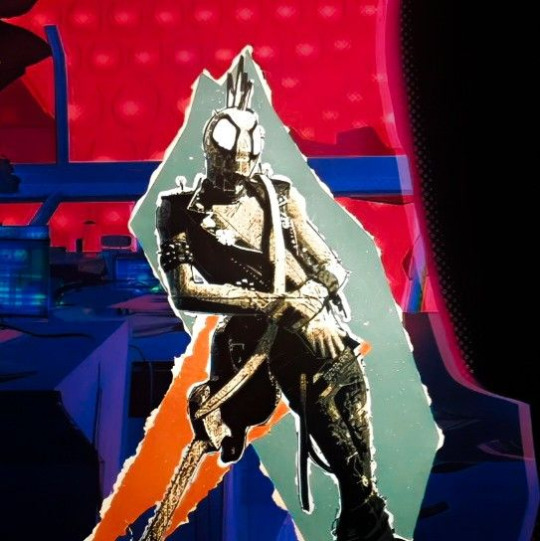

BYE.
#Did yall know about this? Idk know is any of this is common knowledge im gonna be real dugshjdgjks#It's a GREAT detail its so small but I love it#no proofread you get what i meant#and of course if you have any info to add or correct me on#feel free!! I wanna spread accurate info :)#spiderman#atsv#spider man#marvel#across the spiderverse#pavitr prabhakar#atsv meta#atsv meta analysis#meta#meta analysis#spiderman india#spider man india#pavitr#atsv pavitr#gayatri singh
500 notes
·
View notes
Text
I'm sorry, but actually I'm not over that comment whining about how several of the JVP ritual, uh, practices and bastardization of Judaism are being excluded and how we can't police people's identities.
Actually yes we absolutely can.
[Rant incoming]
Listen, I hate exclusion, alright? Inclusion is always the answer when it comes to people knowing who they are. Every obnoxious identity policing thing in the queer community that has divided us and ripped apart communities has been cruel, counterproductive, given platform to bigots, a distraction from the real issues bearing down on us, and honestly just dumb as a box of rocks. Okay? Okay.
But Jewish identity works differently, because it isn't about YOU. Becoming Jewish is about taking on Jewish culture and religion, a closed ethnoreligious culture, through the narrow path consented to by the collective Jewish people. There IS a path, but it is a highly supervised one. Otherwise it's just appropriation and cultural theft; something Jews have been subjected to for millennia. And if you do legitimately convert you do so because you love the Jewish people - the whole Jewish people - and want passionately to be a Jew for its own sake. You want to join our nation-tribe. You want to join our family.
And the crazy thing to me, the thing that still blows my mind, is that this is allowed! Even after millennia of appropriation, oppression, violence, expulsions, and genocides, Am Yisrael still accepts genuine gerim. It would be so understandable if they had closed the path entirely and tried to shut out outsiders who might bring in danger on their heels even if they themselves were not dangerous.
But they didn't. We didn't. To me this is a miracle, a blessing, and sign of true faith and hope. It is a privilege to be here.
Yet in the same turn, you gotta respect the process! You can't just declare yourself a Jew simply because you feel like it — it doesn't work like that. You can't just declare yourself an Argentinian one morning either without becoming a citizen first, even if you have Argentinian ancestry. And sure, if you do have some of that ancestry, you are connected to the nation, but that's different from being given a vote y'know?
Using a totally unsupervised, totally unsanctioned, brand-new neo-pagan ritual to unilaterally declare your membership in a tribe does not make you one of us. If anything, it proves why you never will be.
Now! Let's assume for a moment that we are referring only to the provably halachic Jews whose connection and backgrounds are beyond reasonable questioning.
You can never really leave the tribe, but you absolutely can apostasize. Plenty of Jews do it. There are plenty of Jews who find that Judaism is not spiritually fulfilling for them but something else is, and they convert out. There are halachic Jews who have walked away from Judaism in order to practice any other number of religions: Christianity, Islam, Neo-paganism, Hinduism, etc.
That is their prerogative, but by doing so they turn away from their people in a serious way and cannot be said to be practicing Judaism. There is of course room for many different types of Jewish practice, but conversely, there are practices that are too far removed from Judaism to meaningfully be considered as such. Otherwise, it's no longer a coherent group identity. And because Judaism is a collective identity, that actually matters.
The Jews as a people have decided that worshipping gods that are not Hashem is not within the realm of Judaism, which is why messianic "Jews" are not practicing a valid form of Judaism even if they are halachicly Jewish and/or have Jewish ancestry. Worshipping Jesus makes you a Christian or at least adjacent. That is a hard boundary.
And yeah — if you change the basic meaning of holidays, if you bring in lots of practices that are brand new and have no halachic or even historical basis, are often highly individualistic, and would not be accepted as Judaism by the vast majority of Jews, then it absolutely falls outside it. If I started practicing a religion that made little icons of Muhammad to pray to once a day and celebrated my ingenuity with pork roast and a nice glass of wine, I don't get to say that I'm practicing Islam.
These people are doing the Jewish equivalent. It is something else entirely. Especially because so many of these practices spit in the face of major tenets of Judaism and go against Jewish values.
To treat it otherwise is to treat it as an absolutely meaningless aesthetic rather than a living breathing ethnoreligious tribe of people who get to decide our own community's boundaries and practices collectively.
And for the naysayers who still disrespect Judaism and Jewish identity and peoplehood so much that they think that they get to define Judaism more than actual rabbis? Look, we can't physically stop you from calling yourself Jewish, but by the same turn, YOU can't force US to recognize you as one of us. You can be mad, but that's the thing about group cultural identities — that cultural group gets to decide whether they claim you or not.
[To be clear: this is not about politics — there are plenty of Jewish non-Zionists and anti-Zionists who are 100% Jewish. This is about this one specific shitty organization and this particular type of behavior.]
376 notes
·
View notes
Text
I think Orym is a fascinating character in a way that is often underappreciated, because he is fundamentally a soldier, he was trained as a soldier, and that's... not a bad thing? It has no moral indication, and certainly doesn't imply that Orym is going dark. In fact, in the current circumstances, Orym acting as a soldier is very important and may actually get them through this in one piece.
I do feel that this aspect of his character is frequently approached in the fandom as an afterthought or even swept under the rug, or flat out viewed as a flaw to be overcome (especially given the overall landscape of military conflict in the real world), but being a trained soldier is not inherently indicative of specific morality or ideology. I think it's a judgment that also gets levied against paladins, because, much like any organized forces in fantasy are equated with modern militaries, fantasy worship is equated with Christianity (sometimes in the guise of 'organized religion' with all of its problematic connotations). It's incredibly black and white, and it doesn't fundamentally make sense in much of Exandria, but in this case especially.
You cannot fundamentally map the Tempest Blades onto any real life military, because the task of the Tempest, and Ashari culture as a whole, is protection against both extraplanar threats and also the malicious or misguided intentions of those on the Material Plane trying to fuck with the elemental planes. This is distinctly different even in universe from, for instance, Caleb, who was trained as an assassin in the name of nationalism, or Yasha, who was trained to be a leader in the name of tribalism.
And these two threats that the Ashari are tasked with resisting are both frequent, credible, and existential! Failing at this task is liable to have major sweeping repercussions for the rest of Exandria! It is highly probable that a soldier with Orym's training is expected to need to make incredibly difficult decisions in defense of the common good at more than one point in their life—decisions that would make every person who laughs at the premise of the trolley problem shit their pants.
And crucially, Orym wants his friends to get out of this. He has in fact already promised his entire life to ensure that they do, because he also fundamentally needs them to be able to do what they came for, without hesitation, because the singular mandate that he has devoted himself to is protecting the Material Realm from extraplanar threats, and regardless of the fact that the rest of them do not have the same training, that is also the task that the Hells have chosen.
If Nana Morri can get the Hells out in one piece, regardless of what choices they make, then their personal risk doesn't matter. I imagine that Orym isn't going to tell them that, because given the scope of the threat, there's not necessarily a guarantee that Morri can make that happen, so the rest of the Hells have to make the choice themselves to take the risk and trust that the others have their backs. And in the end, if Orym has to live with that no matter which way fate plays out, he will. He's already had plenty of practice.
They're at war, and that's how soldiers operate. Because when they're behind enemy lines, it's the only way missions get completed and they have a chance of making it back alive.
#critical role#cr spoilers#cr meta#orym of the air ashari#honestly like. the ashari aren't even a nation let alone a state. not that that distinction means anything to most people in this fandom.#anyway I do support orym in his endeavors 😌#I hope he continues to take the drill sergeant approach cuz it slaps#I did also have war flashbacks to people calling the cobalt soul 'cops' cuz oh my god#this was for the record what made me think about WHY the scourger program was in place cuz hoooo boy
382 notes
·
View notes
Note
okay this is a bit of a random question, and please feel free to ignore it for whatever reason! and please forgive any clumsy wording, i promise i'm asking just from curiosity and without any malice.
i know in jewish culture the mother is the one who sort of 'transfers jewishness' to the children, so i was wondering what would happen if a jewish trans man had a baby? would the kids be considered jewish or, because he's a father, would it be different?
lastly, i just wanted to thank you for all of your posts. i learn so much from you, and it always makes me smile when i see one of your art or tree posts!
What a great ask!!!! Thank you so much for your kind words!!!! It makes the stressful parts worth it. 😊🩵🩵
So, first off, I’m no rabbi or even a religious scholar. I’m just a Jew who likes being a Jew.
But here is my take that other Jews are free to add onto or provide sources on.
But there is no Jewish High Authority. There’s no, like, Jewish pope to sit around and let Jews know they’ve Done Jewish Wrong. Judaism is a cultural of mutual acceptance based on the totality of shared cultural wisdom and understanding.
So, a person cannot just decide “I’m Jewish now” and be Jewish. Jews as a community must accept them into our tribe after they’ve demonstrated an understanding of and commitment to our broad understanding of life. Jews also don’t have sects. We have different branches or streams of belief ranging from humanist to ultraorthadox, but we are all equally Jewish. We don’t even all believe in G-d. Our core values revolve around how we treat one another and are nuanced, which is why becoming a Jew is a process.
With that in mind, with the exception of a few very strictly outlier cases, matrilineal passage of religion is more of a guideline than a hard and fast rule.
I could be wrong as it’s been awhile since I learned this and may have some details mixed up, but I believe that the matrilineal passage of culture was partially instituted due to the frequent rape of Jewish women. As a community, we consider a child born to a Jewish woman to be as much a part of our community as any other member of our community, regardless of who fathered that child. Likewise, we take communal responsibility and cultural claim to that child. Someone cannot rape a Jewish woman and the take her child from her to be raised as non-Jewish that is an affront to us.
Other reasons I’ve heard for why Jews pass religion through mothers is due to equality. Matrilineal passage of culture is only one part of passing Judaism across generations. Jews get the religion from their mother and their tribe from their father. There used to be 12 tribes named after all of Jacob’s sons. But those were mostly scattered/lost over persecution and diaspora. Now there are only three (depending on how you break it down. It gets complicated LOL): Yisrael, Levi, and Cohen. Most Jews are tribe of Yisrael. I am tribe of Yisrael because my father is tribe of Yisrael. When you convert to Judaism you also become tribe of Yisrael. My mother is a Levite (tribe of Levi) because her father was a Levite. Historically, Levites played an important role in the Old Temple in Jerusalem as well as other culturally distinct duties ranging from everything from maintaining the temple itself, education of the Jewish community, singing in the old temple, serving as judges, and serving as guards of the temple. In diaspora and in times of strife in the biblical era, Levites also helped keep Jewish communities together and safe.
The remaining tribe is Kohanim. This group is believed to be directly descended from Aaron, Moses’s brother and therefore descended from all the priests of the temple in the biblical era.
It is possible that the Levites and Kohanim were able to maintain their tribal lineage patrilineally due to their status as leaders in early diaspora and therefore being able to maintain their roles in diasporic Jewish communities longer. I simply don’t know. But I do know that the culture is what mothers traditionally pass down and the duties and history of the tribe is passed down via the fathers. When both parents are Jewish, what matters is that each parent passes an important aspect of cultural identity on to their children.
But none of this is compulsory or set in stone.
And I will again say that my understanding of it all may be fundamentally flawed in some way, because of how unimportant it is to me personally. I mean, I think it’s cool that my mom can trace our lineage back so far. And even some DNA tests done several years ago have confirmed that my mom is descended from an actual Talmudic scholar which is fun to know. I think it’s cool that my ancestors were biblical nerds and judges and that my grandfather was a lawyer and that my skill that benefits the Jewish community during times of strife in diaspora seems to be education and outreach. I like that I personally seem to excel at issues related to judgment and education and community cohesion, because it is so in line with the history of my ancestors as determined by cultural norms as well as DNA. It also makes me sad that diaspora has taken away some of that cultural heritage from other Jewish tribes.
But it doesn’t actually have anything to do with how Jewish we are OR how important or valid we are to or within the Jewish community. These are rules/guidelines that were developed with the goal of maintaining identity and culture despite immense hardship. These are rules/guidelines meant to strengthen our community. But they were never (as far as I understand it all) meant to EXCLUDE anyone.
And here’s the thing: a slang way Jews have of referring to one another is as “members of the tribe.” Because beyond Yisrael or Levi or Kohen, we are all JEWS. We are all a member of the same tribe, and that tribe is Judaism.
Is the trans man Jewish? Have he and his partner (if he chooses to have a partner) agreed to raise their child Jewish? Then congratulations to them and their Jewish baby!!!
If one parent is a Levite or a Kohen and the other is another tribe, I’ll let them and rabbi decide how to sort that out. But even then it wouldn’t likely be viewed as a matter of contention but more as a fun Talmudic riddle to explore.
TL;DR: Patrilineal Jews are just as Jewish as any other Jew. And trans men are men. Beyond that, everything else is Talmudic nuanced debate.
146 notes
·
View notes
Note
Hey! Thank you for all of your work with this blog. I have a Black character who wears his hair in long, thick twists. He also spends long amounts of time on the road, and some time as effectively an outlaw while he fights the evil government. This is all a pseudo-medieval fantasy setting. A few questions I had about hair maintenance on the road:
I understand that wash day is usually a big deal once a week, but how would he care for his twists quickly while he's got bigger stuff on his plate and next to no resources save the occasional stream?
The twists reach about the center of his back when let down. When wearing a durag would he tuck this long hair up into it? How does it feel to sleep without a silk cap? How does it affect your hair the next morning?
How would his hair degrade over time on this reduced schedule? I'd like to show him progressively losing more and more focus on himself and his wellbeing as he puts all of his energy into saving the world, and think this would be a good point to hit.
There's a turning point where he loses a lot of confidence in himself and writes off the need to care for himself. I'd like to represent that by him getting fed up with needing to care for his hair and roughly cutting off his twists. this last one is just to make sure I haven't missed some cultural context that makes that super offensive. It grows back magically later lol. bc my baby deserves to take care of himself etc etc.
Thank you so much! Sorry for the long ask, he's my baby and I want to use his hair to help represent his emotional journey through the story. Have a great day!
I'm gonna answer these in sections.
1) if he doesn't have the time, he wouldn't. Twists might not be feasible if he cannot maintenance them as necessary. They'd start to tangle after a while, and grow out of the style.
2) 🤣 this one offended me a little bit, I won't lie. durags are not for twists. Durags are scarves, meant to keep things flat. He'd need a bonnet if he wanted to keep his hair covered at night at all. The feeling is subjective; I would be uncomfortable without a cap, but some people wouldn't care. The twists would be frizzier the next day. It just feels like sleeping regularly, with something covering your head. No hair in your face because it's in the bonnet.
3) depends on the life he's living. It would do what any type of hair would do, which is show signs of lack of care like dirt, tangling, maybe matting if it's been that long. But it'd just grow back into an afro.
4) cutting off your hair because you can't maintenance it is regular. If his hair matters a lot to him, which is a human experience, he will of course express that in the writing. If he is a part of a culture or religion where hair length is important and hair should not be cut, then it will really show just how low and sad the situation is for him.
54 notes
·
View notes
Note
american who grew up protestant: all religion is bad because of [feature unique to christianity] and [feature unique to abrahamic religions]! i can’t believe all of us christians grew up being taught that [teaching unique to protestantism]! this specific religious issue affects everyone [by "everyone" they mean "americans"]!
like obviously there’s massive nuance to this but it’s sooo tiring hearing some american WASP or whatever discussing religion without knowing anything about religion in other countries, different cultures, Indigenous religions and spirituality, ethnoreligions, religious persecution, or religions other than christianity (or religions other than christianity, islam & judaism at *best*).
you cannot “destroy religion” your way into collective liberation.
you cannot argue for “a religionless world” without inherently and inadvertently calling for cultural genocide.
most of these exvangelicals don’t even care to explore the ways they’re still part of the cultural hegemonic majority. they don’t care to realize they’re still *culturally* christian, and that just because they now don’t believe in a god, it doesn’t mean their values, their perspective, their ethics, their cosmology, their politics *are no longer* influenced by their experience of their specific brand of protestantism/christianity. they are, most of the times and by all means, Christian Atheists™️
they have no interest in unpacking how their critique and disdain for “the Old Testament God” has historically affected and continues to affect Jewish people to this day. they have no interest in unpacking how their open mockery of Jesus also offends Muslims, not just their hometown church.
Christianity hurt you. but that does not give you a free-pass to be weird about all religious people and their beliefs. especially when their background, experience, level of privilege, geographical location, and religion practiced looks nothing like what you used to do. because, believe it or not, not “all religion” is the same. it’s soooo not that simple.
“end all religion” sounds like a liberatory chant when your ex-religion belongs to the cultural-religious hegemony of your region and has a strong political and social power (which IS to be criticised and dismantled, don’t get me wrong.) however, “end all religion” sounds a LOT less liberatory when you’re a persecuted religious minority. because “when” we do “end all religion,” who do you fucking think is going to be ended first?
TLDR: good for you for deconstructing. 👍 now, deconstruct some more. 👍 atheism is fine, anti-theism is a harmful pipeline.
120 notes
·
View notes